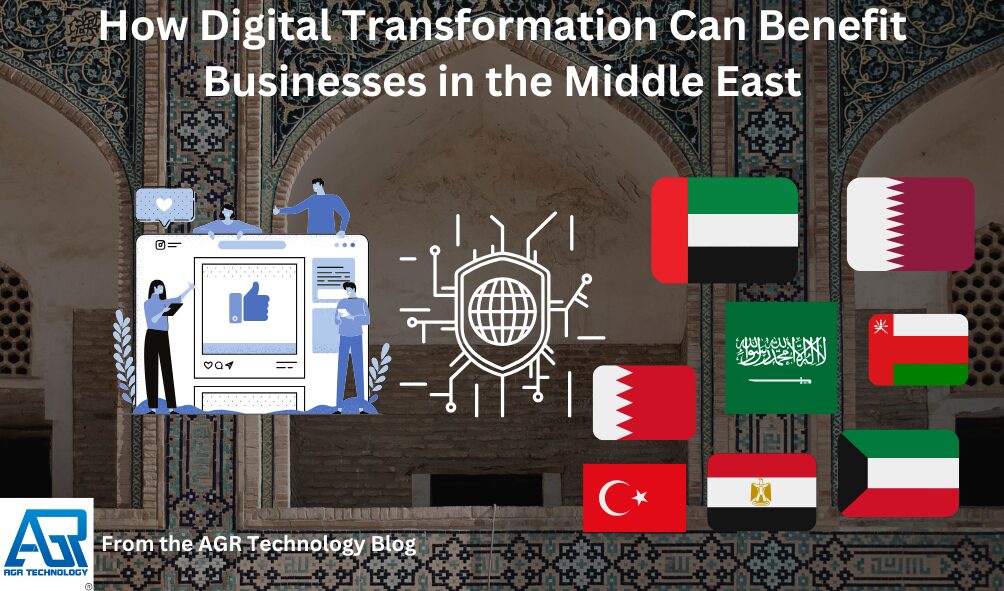Digital Transformation in the Middle East: A Path to Economic Growth & Innovation
The Middle East stands at the cusp of a digital revolution, transforming from a region traditionally known for oil into a beacon of technological innovation. This remarkable shift is reshaping economies and creating unprecedented opportunities across multiple sectors. Many Gulf Cooperation Council (GCC) countries are implementing ambitious economic diversification initiatives aimed at reducing their dependency on oil and gas. Countries such as Bahrain, Saudi Arabia, and the United Arab Emirates have all articulated economic strategies that include extensive use of sophisticated technologies.
Digital transformation in the Middle East isn’t just about implementing new technologies – it’s fundamentally changing how businesses operate and serve their customers. The region’s unique relationship-based culture combines with modern digital solutions to create a distinctive approach to business transformation. This evolution is particularly significant as it drives economic diversification, creates new job opportunities, and fosters innovation across industries, marking a decisive step away from traditional oil dependency.
The Current State of Digital Transformation in the Middle East & MENA Region
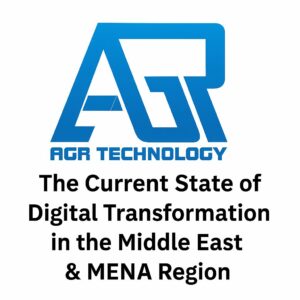
Digital transformation in the Middle East marks a strategic shift from traditional industries toward technology-driven economies. Regional governments invest in smart city programs, digital infrastructure partnerships with private sectors to accelerate technological advancement.
Regional Challenges and Opportunities
The Middle East faces distinct digital transformation challenges alongside promising opportunities:
Challenges:
- Digital skills gap in the local workforce
- Cybersecurity vulnerabilities requiring enhanced protection
- Infrastructure development costs across diverse geographic areas
- Integration of legacy systems with new technologies
Opportunities:
- Young tech-savvy population driving digital adoption
- Strong potential for AI and IoT implementation
- Growing e-commerce market expansion
- Cross-border digital collaboration initiatives
Government Initiatives Driving Change
Middle Eastern governments launch comprehensive digital programs to modernize public services:
Key Projects:
- Qatar Smart Program (TASMU): Leverages IoT, big data, and AI for enhanced public services
- Digital Government Services: Implements e-government platforms for improved accessibility
- Smart City Developments: Creates technology-integrated urban environments
Strategic Focus Areas:
| Initiative Type | Potential Impact Metrics |
|---|---|
| E-government Services | 60% increase in digital service adoption |
| Smart Infrastructure | 45% improvement in public service delivery |
| Digital Economy Programs | 35% growth in tech sector contribution |
These initiatives create new industries, foster innovation, and support economic diversification beyond traditional oil dependency. Government policies prioritize digital infrastructure development and technology integration across public sectors.
Different Countries in the region and how they are adopting and can benefit from digital transformation solutions
The below is a summary aggregated from Wikipedia about each country followed by specific details about digital technologies and initiatives adopted by these countries and that can benefit businesses in the respective regions.
United Arab Emirates (UAE)
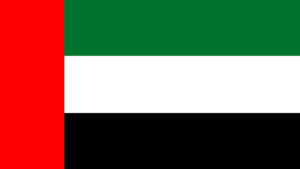
In just 50 years, the United Arab Emirates (UAE) has evolved from a Bedouin tribe into one of the wealthiest nations in the world, with one of the highest GDP per capita rates globally. While its economic growth has been steady, it has also experienced occasional recessions and fluctuations. As of 2018, the UAE’s economy ranks as the second-largest in the Gulf Cooperation Council (GCC), with a nominal GDP of US$414.2 billion and a real GDP of 392.8 billion USD (adjusted to constant 2010 dollars). Since gaining independence in 1971, the country’s economy has expanded nearly 231 times, reaching 1.45 trillion AED by 2013. Additionally, non-oil trade has surged by about 28 times between 1981 and 2012. Over the last four decades, the UAE’s real GDP has more than tripled, fueled by its vast oil reserves (the seventh-largest in the world), smart investments, economic openness, and strong government leadership.
In recent years, the UAE has embraced digital transformation as a core pillar of its continued economic diversification and modernization. Cities like Dubai and Abu Dhabi have become regional hubs for innovation, smart infrastructure, and digital services, driving the country’s shift toward a knowledge-based economy. Government initiatives such as Smart Dubai and Abu Dhabi’s digital government strategy have paved the way for widespread adoption of advanced technologies. As a result, companies across various sectors are increasingly investing in software development, website design, Search Engine Optimization (SEO), and digital marketing to stay competitive in an evolving digital landscape. These services are not only enhancing customer engagement but also enabling businesses to expand their reach locally and globally, further cementing the UAE’s position as a forward-looking and tech-savvy economy.
The UAE has positioned itself as a global leader in the adoption and regulation of cryptocurrency and blockchain technology. With forward-thinking frameworks and initiatives such as the Dubai Blockchain Strategy and the Emirates Blockchain Strategy 2021, the country aims to transform 50% of government transactions onto blockchain platforms. Dubai has become a magnet for blockchain startups, cryptocurrency exchanges, and fintech innovators such as forex trading platforms as well as software to buy/sell commodities like Gold, supported by regulatory bodies like the Dubai Virtual Assets Regulatory Authority (VARA). These developments not only enhance transparency and efficiency in financial transactions but also attract global investors and digital entrepreneurs, further solidifying the UAE’s role in shaping the future of decentralized finance and digital assets.
A wide range of industries in the UAE are reaping the benefits of digital services like web development, SEO, digital marketing, and blockchain integration. Luxury brands leverage high-end websites and targeted marketing campaigns to enhance brand prestige and drive online sales, while the hospitality sector—including five-star hotels in Dubai and Abu Dhabi—uses digital tools to offer seamless booking experiences and personalized guest services. Skincare and wellness brands tap into e-commerce platforms and influencer-driven marketing to reach a growing base of health-conscious consumers. Meanwhile, e-commerce businesses across various sectors are optimizing their digital presence to increase visibility, streamline operations, and build customer loyalty in an increasingly competitive market. Together, these industries demonstrate how digital transformation is reshaping the way businesses operate and connect with consumers in the UAE.
Due to the tax conditions and favourable policies for companies many startups have either moved or been established in the UAE across various sectors such as ICO/Blockchain/Crypto projects and more.
Oman
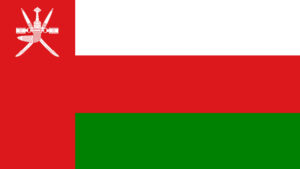
Nestled on the southeastern edge of the Arabian Peninsula, in Western Asia and the Middle East, lies the nation of Oman, officially known as the Sultanate of Oman. This country shares terrestrial borders with Saudi Arabia, the United Arab Emirates, and Yemen, with its largest urban center and capital being Muscat. In 2024, Oman’s population stood at approximately 5.28 million inhabitants, marking a notable 4.60% increase from the previous year, 2023, and positioning it as the 123rd most populous country globally.
Oman’s extensive coastline borders the Arabian Sea to the southeast and the Gulf of Oman to the northeast. Notably, the Omani territories of Madha and Musandam are enclaves entirely surrounded by the United Arab Emirates on their landward sides. The coastal boundaries of Musandam are defined by the Strait of Hormuz, a waterway it shares with Iran, and the Gulf of Oman.
Beginning in the 18th century, the Omani Sultanate rose to prominence as an empire, actively vying for influence in the Persian Gulf and the Indian Ocean against the Portuguese and British empires. The zenith of Omani power occurred in the 19th century, when its influence and control stretched across the Strait of Hormuz into Persia and Pakistan, and southward to the island of Zanzibar. The 20th century witnessed the increasing influence of the British over the sultanate. For more than three centuries, the relationship forged between these two powers was mutually beneficial. The United Kingdom acknowledged Oman’s strategic geographical location as a vital commercial hub that safeguarded British trade routes within the Persian Gulf and the Indian Ocean, while also protecting London’s interests in the Indian subcontinent.
Oman operates as an absolute monarchy under the rule of a sultan, with succession to power following the male lineage. Sultan Qaboos bin Said held the throne from 1970 until his passing on January 10, 2020. Having no children, he designated his cousin, Haitham bin Tariq, as his successor in a written testament, a decision subsequently affirmed by the ruling family, making him the current Sultan of Oman.
Distinguished as the oldest continuously independent nation in the Arab world, Oman is an active member of several international organizations, including the United Nations, the Arab League, the Gulf Cooperation Council, the Non-Aligned Movement, and the Organisation of Islamic Cooperation.
Globally, Oman’s oil reserves rank as the 22nd largest. In 2010, the United Nations Development Programme recognized Oman as the nation with the most significant progress in development worldwide over the preceding four decades. Its economy is partly sustained by tourism, alongside the trade of seafood, dates, and other agricultural products. The World Bank classifies Oman as a high-income economy, and as of 2024, the nation holds the 37th position in the Global Peace Index, indicating a high level of peacefulness.
Oman is actively pursuing digital transformation across various sectors, leveraging advanced technologies to enhance services and drive economic growth. The government’s “Tahawul” program has made significant strides, achieving 73% overall performance in digital transformation by the end of November 2024, with a goal to digitalize 80% of essential government services online by 2025. This push is fostering the adoption of technologies like 5G, with Oman already surpassing the OECD average in coverage, and the development of AI and advanced digital technologies through national programs. Key services and industries are benefiting immensely from this digital shift.
In the eCommerce Market, the number of users is expected to amount to 1.8m users by 2029.
Source: Statista
Revenue is expected to show an annual growth rate (CAGR 2025-2029) of 8.15%, resulting in a projected market volume of US$2.77bn by 2029.
Source: Statista
The software development industry is also expanding rapidly, with the ICT market expected to reach USD 9.11 billion by 2030, fueled by government digitalization initiatives and the growth of SMEs. Consequently, services like SEO, website design, and digital marketing are becoming increasingly crucial for businesses to establish a strong online presence and capitalize on the burgeoning digital economy. Trends in website design in Oman include mobile-first approaches, minimalist and clean aesthetics, and fast loading speeds, while digital marketing strategies emphasize SEO, social media engagement, and content creation tailored to the local market.
Saudi Arabia

Qatar
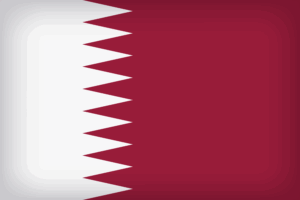
Qatar, officially known as the State of Qatar, is a nation in West Asia situated on the Qatar Peninsula, bordered by Saudi Arabia to the south and encircled by the Persian Gulf. The Gulf of Bahrain separates it from the island nation of Bahrain. Doha, the capital, is home to the majority of the population, and the landscape primarily consists of flat desert terrain.
The country has been governed by the Al Thani dynasty since the 19th century, beginning with a treaty between Mohammed bin Thani and the British in 1868. After a period of Ottoman influence, Qatar came under British protection in 1916 and achieved full sovereignty in 1971. Today, Emir Tamim bin Hamad Al Thani wields broad powers across all branches of government under the national constitution. A partly elected legislative body exists but has limited influence.
As of early 2017, Qatar’s population stood at approximately 2.6 million, but only a small fraction—around 313,000—were Qatari nationals. Islam is the state religion. Economically, Qatar boasts one of the highest GDPs per capita globally, driven by immense reserves of natural gas and petroleum. It is a major player in global LNG exports and ranks as the largest carbon emitter per person.
In recent decades, Qatar has risen as a key diplomatic and economic actor in the Middle East. It has strong ties with the U.S., partly through its media influence via Al Jazeera and its involvement in regional politics, including the Arab Spring. It is also a member of the Gulf Cooperation Council.
The name “Qatar” originates from early Roman references such as “Catharrei” and “Catara,” recorded by Pliny the Elder and Ptolemy. Over centuries, the name evolved through several variations before settling on the current form. In Arabic, its pronunciation differs depending on the dialect, while English approximations vary due to phonetic differences.
Qatar is strategically embracing digital transformation as a cornerstone of its Qatar National Vision 2030, aiming to build a knowledge-based economy and enhance its global competitiveness. The nation has made significant strides in adopting various technologies, including achieving near-universal 5G coverage and expanding its fiber-optic network infrastructure. For instance, in healthcare, Artificial Intelligence (AI)-powered diagnostic tools are being implemented to improve the speed and accuracy of medical imaging analysis, leading to earlier detection of critical conditions. Furthermore, Qatar is fostering a thriving digital economy by establishing data centers with major cloud providers like Microsoft and Google Cloud, and by promoting initiatives such as the Digital Transformation of SMEs Programme to bolster innovation and efficiency across sectors. This commitment to technological advancement is evident in the development of smart cities like Lusail, which integrate advanced ICT infrastructure and sustainable technologies to enhance urban living.
In the interconnected digital landscape, businesses leverage various online services and platforms to enhance their visibility and reach. Search Engine Optimization (SEO) solutions are crucial for improving a website’s ranking on search engines like Google, thereby increasing organic traffic and attracting potential customers. Digital marketing encompasses a range of strategies, including social media promotion and online advertising, to connect with target audiences and build brand awareness. Effective website design focuses on creating user-friendly and visually appealing online platforms that provide seamless experiences across different devices. Software development involves creating custom applications and solutions tailored to specific business needs, driving efficiency and innovation. While the regulatory landscape for cryptocurrency exchanges in Qatar is still evolving, these platforms facilitate the trading of digital currencies, reflecting the growing global interest in blockchain technology and decentralized finance.
Qatar’s burgeoning fintech sector is rapidly evolving, driven by government initiatives and a tech-savvy population. This growth encompasses various areas, including the development of sophisticated forex trading brokerages and apps utilized by individuals and institutions for currency exchange and investment. The digital transformation in finance is also fostering advancements in payment gateways like Stripe, making online transactions more seamless and secure for e-commerce platforms. Furthermore, the increasing interest in decentralized finance is leading to the emergence of regulated platforms for cryptocurrency exchange, allowing users to trade digital assets. These technological advancements are contributing to a more efficient and accessible financial ecosystem within Qatar.
Libya
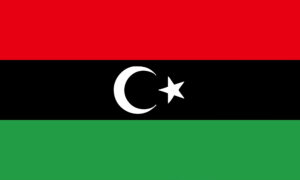
Libya, formally called the State of Libya, lies in North Africa’s Maghreb region. To the north it meets the Mediterranean Sea; on land, it borders Egypt, Sudan, Chad, Niger, Algeria, and Tunisia. Spanning roughly 1.8 million km² (700,000 sq mi), it is the fourth-largest nation in both Africa and the Arab world, and the world’s 16th-largest. The country also asserts a claim over some 32,000 km² of southeastern Algeria near the town of Ghat. Tripoli, situated in Libya’s northwest, serves as capital and is home to over a million of the nation’s seven million inhabitants.
Human presence in Libya dates back to the late Bronze Age, with Berber groups descending from the Iberomaurusian and Capsian cultures. In antiquity, Phoenician traders founded settlements in the west, while Greek colonists established cities in the east. Control later passed among Carthaginians, Numidians, Persians, and Greeks before the Romans unified the territory. Following the Western Roman Empire’s collapse, the Vandals ruled until Arab invasions in the 7th century brought Islam, and centuries of Arab migration reshaped Libya’s demographics. In the 1500s, Spain and the Knights of St John briefly occupied Tripoli until the Ottomans took over in 1551. During the 18th and 19th centuries, Libya featured in the Barbary Wars. Ottoman sovereignty ended with the 1911–12 Italo-Turkish War, after which Italy formed the colonies of Tripolitania and Cyrenaica, later merged as Italian Libya (1934–43).
Libya’s digital transformation has been underpinned by substantial improvements in network infrastructure, ambitious public-sector digitization efforts, and growing private-sector innovation. By January 2024, internet penetration reached 88.4 percent of the population, with 6.13 million users—up 1.1 percent year-on-year—while mobile subscriptions have long exceeded 100 percent, hitting approximately 156 percent penetration in 2021 DataReportal – Global Digital Insights Dataxis. Fixed-broadband access, although still emerging, saw market stimulus in 2020 when regulators mandated a 50 percent cut in subscription fees, spurring the launch of LTE-based networks and submarine cable upgrades to boost speeds and coverage BuddeComm. In parallel, the UNDP’s 2024–25 Budget Highlights earmarked funds for “connectivity and digital transformation,” including undersea cable projects and national fibre-backbone expansions to support Libya’s ambition to become a regional data hub UNDP.
E-Government and Public Services
The Government of National Unity, with UNDP support, has advanced Libya’s e-Government Development Index ranking from 169th in 2020 to 125th in 2022 through online portals for civil registry, licensing, and procurement UNDP. Initiatives like the UNDP’s Digital Strategy 2022–2025 emphasize capacity-building within ministries and the extension of mobile-friendly e-services to rural communities, driving greater ICT uptake across public agencies UNDP. Robust public–private partnerships (PPPs) are central to these gains, as highlighted by e-government experts advocating collaboration with telecom operators to modernize government workflows and enhance service delivery LinkedIn.
Private-Sector Innovation
Libya’s startup scene and fintech ecosystem have flourished amid expanding connectivity and youthful demographics. The UNDP Libya Accelerator Lab identifies technology as a prime diversification avenue, calling for inclusive legislation and PPPs to nurture a digital economy that supports SMEs and fintech ventures Libya Herald. Alwadi Communications reports that local entrepreneurs are leveraging 4G/5G networks to develop e-commerce, logistics, and agtech solutions, while oil-and-gas operators are deploying automated monitoring systems and data analytics in partnership with firms like Sensia Global to optimize field production and safety Alwadi Tech.
Private companies and startups alike have also adopted various strategies such as customised software development, bespoke SEO services to rank higher in search engines, digital marketing strategies as well as quality websites to convey their branding and reach more potential clients.
Digital Health, Challenges, and Outlook
In response to COVID-19, Libya’s Telemedicine Initiative (TI4L) introduced cloud-based electronic medical records and telehealth platforms, improving access to care for remote communities and laying groundwork for a National Digital Healthcare Strategy Alwadi Tech. Yet, political fragmentation and security concerns continue to stall regulatory reforms on data protection and digital finance, deterring investment outside major urban centers GSMA. Looking forward, sustained PPPs, clear policy frameworks, and continued UNDP and World Bank engagement will be crucial for Libya to consolidate its digital gains, drive economic diversification, and broaden digital inclusion across all regions.
Iraq
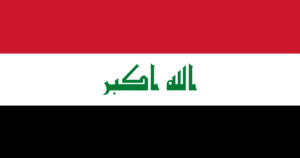
Iraq—officially the Republic of Iraq—is a West Asian country bordered by nations including Iran, Turkey, and Saudi Arabia. It spans over 438,000 square kilometers and is home to more than 46 million people, with Baghdad as its capital and largest city.
The region, once ancient Mesopotamia, is known as the cradle of civilization. It was the birthplace of early cities and innovations like writing, mathematics, and law. During the Islamic Golden Age, Baghdad became a global center of learning and culture. Iraq holds deep religious and historical importance for multiple faiths, including Islam, Christianity, Judaism, and Yazidism.
Today, Iraq is a federal parliamentary republic with a rich cultural and ethnic mix, including Arabs, Kurds, Turkmen, and Assyrians. Arabic and Kurdish are the official languages. The country is one of the world’s leading oil producers and also has strong agricultural and tourism potential. With ongoing development and foreign support, Iraq continues its journey of national rebuilding and growth.
As Iraq continues its journey of national rebuilding and growth, digital technologies are playing an increasingly vital role in its development. With a growing population of over 46 million, the need for robust digital infrastructure and services is paramount. Efforts towards digital transformation are underway to enhance efficiency across various sectors, from government services to business operations. For instance, improving online visibility for Iraqi businesses and organizations is crucial, and specialized SEO services Iraq can significantly aid in reaching wider audiences and fostering economic growth. Furthermore, as the country leverages its potential in oil production, agriculture, and tourism, secure and reliable digital platforms are essential.
This necessitates strong web design, hosting & security Iraq to establish a professional online presence and protect sensitive data. To effectively communicate with both domestic and international stakeholders, strategic digital marketing Iraq, including targeted campaigns and reputation management, can build trust and attract investment. Moreover, as Iraq modernizes its infrastructure, custom software solutions tailored to specific industry needs, such as logistics or resource management, offered through custom software development Iraq, can drive significant productivity gains. By embracing these digital advancements, Iraq can further its national rebuilding and growth initiatives, connecting its rich cultural heritage with the opportunities of the digital age.
Bahrain
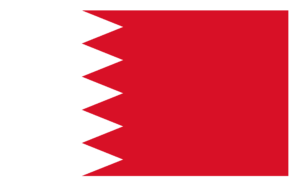
The Kingdom of Bahrain, its formal name, is an island country located in Western Asia within the Persian Gulf. This small collection of islands includes 50 naturally formed and an additional 33 man-made ones, with the main Bahrain Island constituting about 83% of its total area. Nestled between Qatar and the northeastern shore of Saudi Arabia, with a link via the King Fahd Causeway, Bahrain’s population stood at roughly 1.5 million individuals in mid-May 2023. Of this number, around 712,000 were Bahraini citizens, while the remaining approximately 789,000 were foreign nationals from over 2,000 different ethnic backgrounds. Spanning approximately 760 square kilometers, Bahrain ranks as Asia’s third-smallest country. Manama serves as both its capital and most populous city.
Archaeological evidence suggests Bahrain is the location of the ancient Dilmun civilization. Historically, it was celebrated for its pearl diving industry, considered globally superior until the 19th century. Islam’s influence reached Bahrain early, in 628 AD, during Prophet Muhammad’s lifetime. Following a period of Arab governance, the Portuguese Empire ruled from 1521 to 1602, after which Safavid Iran expelled them. The Bani Utbah and allied tribes seized Bahrain in 1783 from Nasr Al-Madhkur, and the Al Khalifa royal family has governed since, with Ahmed al Fateh recognized as Bahrain’s initial ruler.
In the latter part of the 19th century, through a series of agreements with the British, Bahrain became a UK protectorate. It achieved independence in 1971. Initially an emirate, Bahrain transitioned into a semi-constitutional monarchy in 2002, with the newly adopted constitution establishing Sharia law as a key source of legislation. In 2011, the nation experienced protests influenced by the broader Arab Spring uprisings. The Sunni Muslim Al Khalifa ruling family has faced criticism concerning its treatment of various groups, including dissidents, political opposition, and the Shia Muslim population.
Bahrain was among the first in the Persian Gulf to cultivate an economy not reliant on oil, a result of long-term investments in the banking and tourism sectors. Numerous major global financial institutions maintain a presence in its capital. The World Bank acknowledges Bahrain as a high-income economy. It holds membership in the United Nations, Non-Aligned Movement, Arab League, Organisation of Islamic Cooperation, and the Gulf Cooperation Council. Furthermore, Bahrain participates as a Dialogue partner within the Shanghai Cooperation Organization.
Digital Marketing Initiatives in Bahrain
Bahrain has embraced digital marketing as a key driver for business growth. Companies are leveraging advanced strategies such as AI-powered marketing, voice search optimization, and social media commerce to enhance their reach. Digital marketing agencies in Bahrain play a crucial role in helping businesses develop and implement effective strategies, including SEO, content marketing, and influencer collaborations.
Industries Benefiting from Digital Transformation
Several industries in Bahrain have undergone digital transformation, integrating technology to improve efficiency and customer engagement:
- Telecommunications: Batelco, Bahrain’s leading telecom provider, has invested heavily in digital infrastructure and AI-driven customer service enhancements.
- Banking & Finance: The National Bank of Bahrain has adopted digital banking solutions, making transactions more seamless and secure.
- Aviation: Gulf Air has implemented digital solutions to enhance passenger experience and streamline operations.
- Retail & E-commerce: Businesses are increasingly using social media platforms for direct sales, capitalizing on Bahrain’s high internet penetration.
- Energy & Manufacturing: Companies like Bahrain Petroleum Company and Alba have integrated digital tools to optimize production and sustainability efforts.
Bahrain’s Economic Vision 2030 continues to drive digital transformation, ensuring the country remains competitive in the global digital economy.
Kuwait
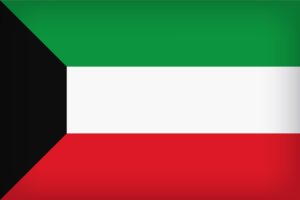
Kuwait, officially known as the State of Kuwait, is a Middle Eastern country situated in West Asia at the northern tip of the Persian Gulf. It borders Iran by sea and has a population of approximately 4.82 million people, including around 1.53 million Kuwaiti nationals and 3.29 million expatriates. Its prime geographic location has made it a site of human settlement since ancient times. In the early 1700s, the region was governed by the Bani Khalid Emirate before evolving into the Sheikdom of Kuwait. In 1899, it came under British protection. Before oil was discovered in 1938, Kuwait served as a key trade hub in the region. The country gained full independence from Britain in 1961. Between 1946 and 1982, Kuwait saw rapid modernization driven largely by oil revenues. However, the 1980s brought economic difficulties and political unrest, particularly following a major stock market collapse.
Kuwait is a high-income economy with the world’s sixth largest oil reserves. Kuwait is regarded as a regional pioneer in the arts and popular culture, frequently referred to as the “Hollywood of the Gulf”; the country founded the oldest modern arts movement in the Arabian Peninsula and has produced some of the region’s most prominent artists. Kuwaiti popular culture, such as theatre, radio, music, and television soap operas, is exported to neighboring Gulf Cooperation Council (GCC) countries. Kuwait is a founding member of the Gulf Cooperation Council, as well as the United Nations, Arab League, and OPEC.
Kuwait is actively pursuing digital transformation across various sectors to enhance efficiency, transparency, and citizen services, aligning with its Vision 2035. This includes significant investments in digital infrastructure like 5G networks and cloud computing. The government is keen on developing e-government services to streamline processes for citizens and businesses.
In terms of digital services, Kuwait has a growing market. Digital marketing agencies offer services such as SEO (Search Engine Optimization) catered towards Kuwaiti brands to improve online visibility, engaging content creation, and social media management. Web design and software development companies provide services ranging from creating responsive websites and e-commerce platforms to developing custom software solutions and mobile applications for businesses.
However, the landscape for cryptocurrency and blockchain platforms in Kuwait is currently complex. The Central Bank of Kuwait has banned cryptocurrency trading for banks and their subsidiaries since July 2023. Additionally, cryptocurrency mining has faced recent crackdowns due to its significant energy consumption and the strain it puts on the national power grid, especially during peak summer months. Despite the ban on trading by financial institutions, it appears that citizens are not explicitly prohibited from engaging in cryptocurrency activities through international exchanges, although the government has issued warnings against investing in them due to associated risks. While blockchain technology itself holds potential for various applications, its adoption within Kuwait is still in its early stages, particularly in areas like exchanges and broader platform development, given the regulatory stance on cryptocurrencies.
Kuwait’s financial sector is progressively embracing fintech to modernize services, with a particular emphasis on digital payments, mobile banking apps, and online platforms that improve customer experience and operational efficiency. While direct cryptocurrency trading by financial institutions is restricted, interest in online financial markets remains high, prompting people to search for “Kuwait forex brokers”, and “best forex platforms Kuwait.” As a result forex trading companies in Kuwait are in high demand in order to traverse the country’s financial landscape.
Palestine
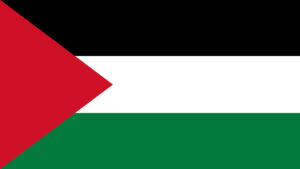
Located in Western Asia, the State of Palestine holds recognition from a large number of United Nations member countries. This nation encompasses the West Bank, including East Jerusalem, and the Gaza Strip – territories under Israeli occupation. These areas lie within the broader historical and geographical region known as Palestine. Sharing boundaries mainly with Israel, and also with Jordan to its east and Egypt to its southwest, Palestine’s landmass spans over 6,000 square kilometers and is home to more than five million people. Jerusalem is its declared capital, though administrative functions are based in Ramallah. Prior to the population shifts of 2023, Gaza City was its most populous urban center.
Historically positioned as a vital intersection of continents, the Palestinian region has been governed by numerous empires and witnessed diverse population shifts throughout history. Its location as a link between Asia and Africa made it a route for the armies and traders of the Nile and Mesopotamia, as well as those from North Africa, China, and India. The area is renowned for its religious significance. The protracted conflict between Israelis and Palestinians began with the growth of the Zionist movement, which gained support from the United Kingdom during the First World War. Following the war, Britain controlled Palestine under a League of Nations mandate. Increased Jewish immigration led to communal strife between Jewish and Palestinian Arab populations, which erupted into a civil war in 1947 after Palestinians opposed a United Nations proposal for partition.
Palestinian entrepreneurship, particularly within the challenging contexts of the West Bank and Gaza Strip, demonstrates remarkable resilience and innovation, increasingly leveraging digital technologies to overcome geographical and political limitations. The adoption of e-commerce platforms, social media marketing, and online communication tools enables Palestinian businesses to reach wider markets, both domestically and internationally, bypassing some traditional barriers to trade and engagement. Key services that can significantly benefit these ventures include access to reliable and affordable internet infrastructure, digital payment gateways to facilitate online transactions, cloud-based software for business management and collaboration, online training and skill development programs focused on digital literacy and e-commerce strategies, and secure data storage and cybersecurity services to protect their online operations and customer information along with targeted SEO services to help increase online traffic. These digital tools and services are crucial for fostering growth, enhancing competitiveness, and creating sustainable economic opportunities for Palestinian entrepreneurs in a dynamic global marketplace.
Turkey (
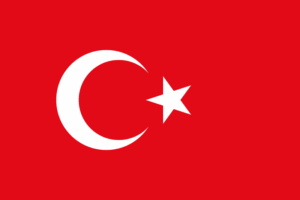
Turkey, officially the Republic of Türkiye, is a transcontinental country situated mainly in West Asia (Anatolia) with a smaller portion in Southeast Europe (East Thrace). It shares borders with several countries and seas, including the Black Sea to the north, the Mediterranean Sea to the south, and the Aegean Sea to the west. Home to over 85 million people, predominantly Turks with a significant Kurdish minority, Turkey is a secular state with a Muslim majority. Ankara is the capital, while Istanbul is the largest city and economic center.
Historically rich, the area was inhabited by ancient peoples and later influenced by Hellenization and Romanization. The Seljuk Turks migrated in the 11th century, leading to Turkification and the eventual rise of the Ottoman Empire, which became a global power by the 16th century. Following a period of decline, the early 20th century saw the Turkish War of Independence, leading to the establishment of the Republic of Turkey in 1923 under Mustafa Kemal Atatürk.
Today, Turkey is an upper-middle-income emergent country with a considerable worldwide economic presence. It is a unitary presidential republic and a member of significant international organizations such as the OECD, G20, and NATO, with a strategic geopolitical position. Turkey, with its diversified topography and temperate temperature, is rich in biodiversity, but it is also vulnerable to earthquakes and climate change. It has a universal healthcare system, expanding educational opportunities, and is a popular tourist destination because of its historical sites and cultural heritage.
Turkey’s digital transformation journey is reshaping a broad spectrum of industries—from manufacturing, retail, finance, and tourism to the booming e-commerce sector. Pressure from global competition and evolving consumer expectations have prompted businesses to adopt advanced technologies as part of a comprehensive strategy to enhance efficiency and service quality. Government initiatives and supportive policies further bolster this trend by incentivizing research and development, improving digital infrastructure, and nurturing innovation ecosystems through techno-parks and startup incubators.
At the heart of this transformation lies the integration of cutting-edge digital technologies. Turkish companies are embracing artificial intelligence to personalize customer interactions, leveraging cloud computing for scalable data management, and utilizing the Internet of Things (IoT) to streamline operations—from smart factories to connected retail environments. Big data analytics is another critical component, driving informed business decisions by extracting actionable insights from vast streams of data. These technological advances are not only modernizing traditional industries but also creating entirely new business models that position Turkey competitively on a global scale.
Complementing these technological advancements are specialized digital services that enable organizations to prosper in the digital age. Search engine optimization (SEO) is critical for increasing online visibility for Turkish businesses, ensuring that businesses rank high in search results and receive organic traffic. In today’s fast-paced online environment, digital marketing services such as social media campaigns, content strategy, and targeted advertising help firms interact with tech-savvy clients. Simultaneously, cutting-edge web design and strong software development form the technical foundation for user-friendly websites and specialized apps adapted to specific industry requirements. Together, these services not only increase consumer interaction and brand loyalty, but also improve operational processes, resulting in a more nimble and competitive market presence.
Looking ahead, Turkey’s commitment to digital transformation is likely to accelerate as businesses continue to integrate these advanced technologies and services. The evolving digital ecosystem, supported by proactive government policies and innovative market players, promises even deeper integration of nanotechnology, blockchain, and augmented reality in sectors like tourism and finance. This expanding digital landscape not only fuels economic growth but also enables businesses of all sizes to reinvent their operations and strategies, paving the way for a resilient, future-ready economy.
Yemen
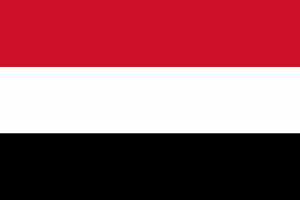
Nestled in the southern reaches of the Arabian Peninsula, the Republic of Yemen, or simply Yemen, stands as a West Asian nation. This country, the second largest on the Arabian landmass, shares frontiers with Saudi Arabia to its north and Oman towards its northeast. Its extensive coastline graces the southeastern part of the Arabian Sea to the east, the Gulf of Aden in the south, and the Red Sea to its west. Across the waters of the Horn of Africa, Yemen also maintains maritime boundaries with Djibouti, Eritrea, and Somalia. Covering an area approximating 455,503 square kilometers (or about 175,871 square miles) and boasting a coastline stretching around 2,000 kilometers (roughly 1,200 miles), Yemen counts Sanaa as its designated capital and most populous urban center. The nation’s populace is largely composed of Arab Muslims, with an estimated count reaching 34.7 million individuals. Yemen actively participates in global and regional bodies such as the Arab League, the United Nations, the Non-Aligned Movement, and the Organisation of Islamic Cooperation.
Yemen’s geographical positioning has historically placed it at the convergence of numerous ancient cultures for over seven millennia. Around 1200 BCE, the Sabaean civilization flourished, establishing a commercial empire that extended its reach into parts of modern-day Ethiopia and Eritrea. The Himyarite Kingdom succeeded them in 275 CE, encompassing a significant portion of present-day Yemen and exhibiting strong Jewish influences. The fourth century saw the introduction of Christianity, followed by the swift expansion of Islam in the seventh century. Post-conversion, Yemen emerged as a prominent center for Islamic scholarship, with Yemeni forces playing a vital role in the initial Islamic conquests. Much of Yemen’s historical architectural heritage has endured into contemporary times. For centuries, it served as a primary source of coffee exported through the port of Mocha. Various ruling families rose and fell between the 9th and 16th centuries. The 19th century witnessed the division of the country between the Ottoman and British empires. Following the First World War, the Kingdom of Yemen came into being, transforming into the Yemen Arab Republic (North Yemen) after a 1962 coup d’état. In 1967, the British Aden Protectorate gained independence as the People’s Democratic Republic of Yemen (South Yemen), marking the Arab world’s first and only officially socialist state. The year 1990 marked the unification of these two Yemeni states into the modern Republic of Yemen, with Ali Abdullah Saleh assuming the role of its first president until his resignation in 2012 amidst the Arab Spring uprisings.
Digital transformation in Yemen is gradually gaining momentum despite ongoing challenges such as limited infrastructure and political instability. Many businesses, particularly in urban centers like Sana’a and Aden, are beginning to embrace digital technologies to enhance efficiency, expand their reach, and stay competitive. Entrepreneurs and SMEs are turning to services such as web design to establish a credible online presence, and search engine optimization (SEO) services to attract local and international customers through organic search. Cloud computing, mobile apps, and social media marketing are also playing a pivotal role in transforming how businesses operate and engage with customers. E-commerce platforms are emerging, often supported by mobile payment solutions and locally adapted logistics services, helping overcome traditional barriers to trade. Meanwhile, digital service providers are offering tools such as online booking systems, customer relationship management (CRM) software, and basic automation solutions tailored to the local market. This shift, though still in its early stages, highlights the resilience and adaptability of Yemeni businesses in leveraging technology to foster growth and innovation amidst adversity.
Iran
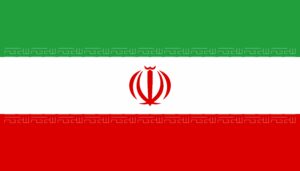
Nestled in West Asia, Iran, also historically known as Persia and officially the Islamic Republic of Iran (IRI), is a substantial nation bordering several countries, including Turkey and Iraq to the west, and sharing northern frontiers with Azerbaijan, Armenia, the Caspian Sea, and Turkmenistan. To its east lies Afghanistan, with Pakistan to the southeast, and the Gulf of Oman and Persian Gulf defining its southern edge. This geographically significant landmass spans over 1.6 million square kilometers, housing a diverse population nearing 86 million, positioning it as a notable country in both size and population within Asia and globally. Characterized by its mountainous terrain, Iran operates as an Islamic republic, administratively divided into 31 provinces across five regions, with Tehran serving as its bustling capital, largest urban center, and economic heart.
Present-day Iran, the Islamic Republic of Iran, stands as a key regional player in West Asia. Its significance is amplified by its substantial reserves of fossil fuels, holding some of the world’s largest natural gas and oil supplies. Strategically located, Iran possesses considerable military strength, cultural influence, and acts as a central point for Shia Islam globally. Its economy ranks as one of the world’s largest based on PPP. A founding member of prominent international organizations like the UN, OIC, and OPEC, Iran also actively participates in the NAM, SCO, and BRICS. The nation is rich in cultural heritage, boasting a remarkable number of UNESCO World Heritage Sites and a high ranking in intangible cultural treasures.
Iran is actively engaging with various digital transformation technologies including SEO Services and more, albeit within the constraints of international sanctions and a unique national infrastructure approach. Artificial Intelligence (AI) is a significant focus, with the government allocating $115 million towards research and development, aiming for regional leadership and even unveiling a prototype of a national AI platform in March 2025. This push includes integrating AI into military applications and fostering a growing AI ecosystem supported by strong academic institutions. However, challenges remain in building robust AI infrastructure, including high-speed data networks, computing power, and access to advanced hardware due to sanctions.
The country is also heavily invested in its National Information Network (NIN), a secure and stable national intranet designed to operate independently of the global internet. This infrastructure aims to enhance domestic connectivity and control data flow within Iran. E-government initiatives are also gaining traction, with the development of platforms like the National Window of Smart Government Services (my.gov.ir), offering a wide array of online services to citizens. Other e-government projects focus on streamlining business licenses, facilitating secure communication between government entities and citizens (E-BOX), and modernizing land management (E-Land).
Fintech is another area of growing interest, with numerous startups emerging, primarily focused on payment solutions. However, the Iranian fintech sector faces obstacles such as limited financial market depth, closed innovation policies from traditional financial institutions, and a lack of widespread customer trust in new financial services. Despite these challenges, there’s a recognized potential for growth and innovation in this sector, with some focus on developing Islamic fintech solutions. Overall, while Iran is making strides in adopting digital transformation technologies, its progress is shaped by a combination of ambitious national strategies and the realities of its geopolitical and technological landscape.
Lebenon

Lebanon, known officially as the Republic of Lebanon, is a nation steeped in rich history and cultural heritage, located in the heart of the Levant in West Asia. Nestled between Syria, Israel, and the Mediterranean Sea, this small but historically significant country spans just over 10,000 square kilometres and is home to more than five million people. Its capital, Beirut, stands as a symbol of resilience and cultural vibrancy.
The land that is now Lebanon has been continuously inhabited since 5000 BC and was once part of the ancient maritime civilization of Phoenicia. Over the centuries, Lebanon became a prized territory under the Roman and Byzantine Empires, later coming under Islamic rule, and eventually the Ottoman Empire. In the 19th century, reforms under Ottoman leadership led to the formation of Mount Lebanon, a precursor to modern Lebanese identity.
Following the collapse of the Ottoman Empire, Lebanon was placed under French mandate until achieving independence in 1943. Since then, the country has operated under a unique confessional political system designed to balance power among its diverse religious communities. Despite periods of peace, Lebanon has endured significant upheaval, including a 15-year civil war, Syrian and Israeli military occupations, and multiple armed conflicts with Israel.
In recent years, Lebanon has faced severe economic hardship, driven by a deep financial crisis, and catastrophic events like the 2020 Beirut explosion. The World Bank has ranked the crisis among the most severe globally since the 1800s. Still, Lebanon remains culturally influential far beyond its borders, thanks to its dynamic diaspora and rich artistic and culinary traditions. It holds membership in key international bodies such as the United Nations, Arab League, and Francophonie, underscoring its enduring importance on the global stage.
Lebanon has made deliberate moves toward digital transformation, particularly through the government’s 10-year Digital Transformation Strategy (2020–2030), approved in 2022. The strategy outlines efforts to implement interoperable digital platforms, digital ID systems, e-signatures, and modern data governance. Several e-government initiatives have been rolled out, including a unified government portal and a digital Commercial Register. Lebanon has also collaborated with international programs like the World Bank’s “Digital Resilience” initiative to enhance digital identity, secure cloud infrastructure, and digital payments. Legal recognition of electronic documents and e-signatures was established under Law No. 81/2018, with further reforms underway to address data protection and e-transactions. However, despite these policy efforts, there is no nationwide broadband plan or universal service fund, and public investment in ICT remains constrained.
In terms of infrastructure, Lebanon’s telecom sector has seen incremental improvements. Mobile operators have tested 5G, and 4.5G LTE coverage is widespread. As of early 2024, approximately 90.1% of Lebanese used the Internet, with 87.6% having mobile broadband connections. Smartphone and social media penetration are both high, providing strong potential for digital service adoption. State-owned operator Ogero has been actively expanding its fiber network and upgrading to LTE and Wi-Fi 7 technologies, with hundreds of thousands of new fiber connections planned for 2025. Nonetheless, fixed broadband penetration remains low, and infrastructure damage from ongoing regional conflicts presents ongoing risks. Lebanon’s highly urbanized and youthful population, however, continues to drive strong demand for mobile and broadband services.
Businesses in Lebanon, particularly SMEs, have accelerated their digital adoption amid the ongoing economic crisis. A large proportion view digital technologies as vital for resilience and growth. Many have migrated their accounting, ERP, and CRM systems to the cloud to cut costs and streamline operations. Demand is rising for solutions like SAP Business One and other cloud-based business management platforms. E-commerce is also gaining traction, with more consumers and businesses engaging in online banking, payments, and retail. Although Lebanon’s domestic online retail sector remains small, delivery platforms such as Talabat and UberEats have flourished, especially during COVID-19 lockdowns.
Fintech has become one of the most dynamic digital sectors in Lebanon. The public’s declining trust in traditional banking institutions has led to a surge in demand for digital wallets, crypto platforms, and mobile money services. Over a dozen e-wallet licenses had been issued by late 2024, and local fintech startups are offering innovative services in areas like banking software, AI trading, and mobile payments. Banks and money transfer operators have also developed new mobile apps and online services to keep up with this demand. Cloud computing adoption is increasing, with Lebanese companies beginning to host services on platforms like AWS, Azure, and Google Cloud.
Digital marketing and customer engagement tools have become widespread. Given the country’s high social media penetration, businesses increasingly rely on platforms such as Facebook, Instagram, and WhatsApp for advertising and customer service. SEO for Lebanon and influencer marketing have also grown, especially targeting Arabic-speaking audiences and the diaspora. Despite these advances, many SMEs still rely on traditional marketing methods due to economic constraints, high logistics costs, and inflation, which hinder full digital transformation in some sectors.
Challenges to Lebanon’s digital transformation include frequent power outages, macroeconomic instability, and limited regulatory infrastructure. The country ranks low on global e-government indexes, and many public systems are fragmented and vulnerable to failure. Capital controls and a largely unbanked population have slowed adoption of digital financial tools. Enforcement of data privacy laws remains weak, and political instability has delayed reforms and investments. Nonetheless, Lebanon has significant potential for digital growth, supported by its educated and tech-savvy population, a large diaspora base, and international donor support. Continued reform and investment could enable Lebanon to overcome its challenges and create a thriving digital economy.
Jordan
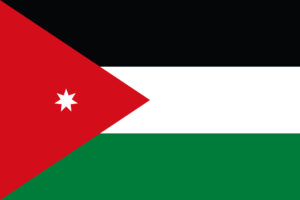
The Hashemite Kingdom of Jordan, situated in the Southern Levant of West Asia, shares its borders with Syria, Iraq, Saudi Arabia, Israel, and the Palestinian territories. Its geography includes a brief stretch along the Red Sea via the Gulf of Aqaba, and its capital, Amman, stands as the largest city in the region. Jordan’s territory has seen continuous human settlement since the Paleolithic era and has hosted civilizations like the Ammonites, Moabites, Edomites, Nabataeans, and later empires such as the Greeks, Romans, Byzantines, and various Islamic caliphates. After the fall of the Ottoman Empire post-World War I, Jordan became a British mandate and gained full sovereignty in 1946. It controlled the West Bank from 1948 until 1967, then officially relinquished the claim in 1988 before entering a peace agreement with Israel in 1994.
Today, Jordan spans roughly 89,000 square kilometers and is home to around 11.5 million people, with Sunni Islam as the dominant religion. Despite the turbulence following the Arab Spring, Jordan has managed to maintain internal stability and has welcomed large numbers of refugees from conflicts in neighboring countries, particularly Palestinians, Syrians, and Iraqi Christians. While this humanitarian stance has burdened the nation’s infrastructure, it underscores Jordan’s role as a regional haven. The kingdom operates as a constitutional monarchy, although the monarch retains significant power. Recognized for its human development progress and skilled workforce, Jordan attracts foreign investment and is a hub for tourism and medical treatment. Still, its economic advancement is challenged by scarce resources, refugee influxes, and ongoing regional instability.
Jordan has been steadily advancing its digital transformation agenda, driven by a national commitment to modernize its economy, improve public services, and foster innovation. The government has implemented a range of initiatives under the “Digital Jordan” strategy, aiming to digitize public services, expand digital infrastructure, and enhance digital literacy across the population. The COVID-19 pandemic further accelerated the pace of digital adoption, prompting both public and private sectors to shift operations online. Among businesses, there is growing reliance on cloud computing, digital payment systems, customer relationship management (CRM) tools, and enterprise resource planning (ERP) software to streamline operations and enhance competitiveness.
Services such as Jordan SEO as well as bespoke Web Design can help Jordanian businesses gain more customers online as well as expanding to international markets. E-commerce platforms have seen increased uptake, especially among SMEs, while digital marketing and social media management tools are now core components of business strategies.
Additionally, sectors such as finance, education, and healthcare have embraced digital tools, including mobile banking apps, e-learning platforms, and telemedicine solutions. These developments reflect Jordan’s growing digital ecosystem, supported by a young, tech-savvy population and a government keen on fostering a robust digital economy.
Egypt
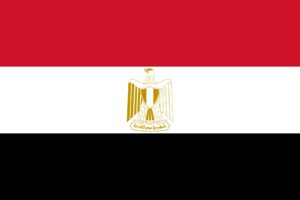
Egypt, officially known as the Arab Republic of Egypt, straddles both Africa and Asia, with the Sinai Peninsula serving as a land bridge between the two continents. It shares borders with the Mediterranean Sea to the north, Israel and the Gaza Strip to the northeast, the Red Sea to the east, Sudan to the south, and Libya to the west. The Gulf of Aqaba separates it from Saudi Arabia and Jordan. Cairo is the capital and largest city, while Alexandria ranks second and is known for its industrial and tourism significance. With a population exceeding 109 million, Egypt is the third most populous nation in Africa and ranks 15th globally.
Egypt boasts one of the world’s oldest and most influential civilizations, with roots along the Nile Delta going back to 6000–4000 BCE. It was a pioneer in areas such as writing, agriculture, organized religion, and centralized government. Initially a major hub for early Christianity, Egypt transitioned to Islam in the 7th century. Over the centuries, it became the center of major Islamic empires, including the Fatimid Caliphate and Mamluk Sultanate, and was later integrated into the Ottoman Empire in 1517. Modern Egypt emerged under Muhammad Ali in the 19th century and gained formal independence from Britain in 1922.
After a revolution in 1952, Egypt became a republic. It briefly united with Syria from 1958 to 1961 under the United Arab Republic. The country engaged in multiple conflicts with Israel, notably in 1948, 1956, 1967, and 1973. A peace treaty in 1978 led to the return of the Sinai Peninsula to Egypt. The 2011 Arab Spring sparked political upheaval, leading to the removal of President Hosni Mubarak. Egypt’s first democratic election brought Mohamed Morsi to power in 2012, but he was ousted by the military a year later. Since 2014, President Abdel Fattah el-Sisi has governed under a semi-presidential system.
Egypt has undergone a rapid digital transformation from 2020 to 2025, driven by both government-led initiatives and private sector innovation. Under the “Digital Egypt” strategy, the government has prioritized digitizing public services, enhancing digital infrastructure, and investing in digital skills training. By 2023, over 5,300 public buildings were connected via fiber optics, with a target of 32,000. The ICT sector has grown significantly, contributing around 5.1% to GDP and attracting over $4.2 billion in investments. Programs like “Our Future is Digital” are training thousands of youth in areas such as web design, digital marketing, and data science.
In the private sector, Egypt’s fintech and e-commerce scenes are thriving. The fintech ecosystem now includes over 170 startups, raising nearly $800 million in 2022—28 times more than in 2019. Major banks, such as ADIB, have pledged over EGP 1 billion for digital upgrades including mobile banking, AI, and cloud systems. E-commerce is expanding rapidly, with platforms like Amazon.eg, Jumia, and Noon helping to push market size toward $14.9 billion by 2028. Businesses are increasingly adopting SEO for Egypt, web development, software engineering, and blockchain to enhance customer engagement and streamline operations.
Healthcare has also been transformed through digital health platforms like Vezeeta and Yodawy, and the digitization of Egypt’s new universal health insurance system. Widespread mobile penetration (106 million subscriptions and 78 million mobile internet users) supports this shift. Businesses are integrating digital tools such as chatbots, AI personalization, and online payment systems like Vodafone Cash and Fawry. Despite progress, Egypt still faces challenges, including regulatory gaps around blockchain, a rural–urban digital divide, and economic instability. However, its youthful population and continued investment in digital infrastructure make it a promising market for further expansion in web technologies and innovation-driven services.
Economically, Egypt has the second-largest GDP in Africa and holds significant influence across the Middle East and the Muslim world. Arabic is the official language, and Islam is the state religion. Egypt plays an active role in global and regional politics, being a founding member of numerous international organizations including the UN, Arab League, African Union, and BRICS.
Tunisia
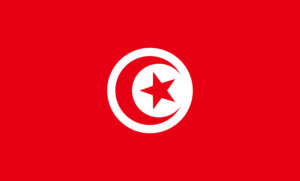
Situated in North Africa, Tunisia is officially known as the Republic of Tunisia and shares borders with Algeria, Libya, and the Mediterranean. Boasting historical landmarks like Carthage and the Great Mosque of Kairouan, the country covers 163,610 km² with a population of 12.1 million. Its geography includes parts of the Atlas Mountains, the northern Sahara, and productive farmland, alongside a long Mediterranean coastline. Tunis is both its capital and namesake. Arabic is the official language, while French is used in administrative settings. Tunisia’s history includes settlement by Phoenicians, Roman rule, Arab conquest, Ottoman dominance, and French colonization, before securing independence in 1956. The Tunisian Revolution of 2011 spurred democratic changes, though later governance challenges altered its political classification. Internationally, Tunisia maintains strong partnerships, especially with European nations, fostering political and economic cooperation.
Over the past five years, Tunisia’s private sector has rapidly embraced digital transformation underpinned by government support and improved ICT capacity. The government has placed digitization high on the agenda via initiatives such as a national digital strategy (2021–25) and the 2018 Startup Act, launching programs like Smart Tunisia 2025 and the E-Houwiya national digital ID (2022). International partnerships (with GIZ, the EU/AfDB, and countries like China/Italy) and projects like the GIZ-run Digital Transformation Center have helped industries and startups to digitalize. These policies spurred private tech investment and fintech growth: notably, the central bank’s financial-inclusion plan helped inject roughly USD 150 million into digital wallets and payment startups. The COVID-19 pandemic further accelerated uptake of online services and remote work. As a result, Tunisian businesses increasingly use cloud and mobile solutions. In finance, banks and fintechs now offer sophisticated online banking platforms, mobile apps, and e‑wallets. For example, VYZYOPay (in partnership with Al Baraka Bank) is a mobile wallet enabling government payments, peer transfers, and merchant transactions. Telecom operators also run mobile-money services, and Tunisia’s national payment switch Monétique Tunisie underpins domestic e-commerce transactions. The Postal Service’s e‑Dinar stored-value card allows citizens and businesses to pay utilities and government fees digitally.
In commerce, e‑retailing has expanded rapidly: by September 2022 some 9.4 million online purchases (about $200 million) were recorded on platforms like Jumia, Founa.tn, or lemarché.tn, mostly in major cities. These sales rely on local payment solutions (Monétique Tunisie, e‑Dinar) and often cash-on-delivery (roughly 80% of orders). Tunisian firms also use digital invoicing and billing systems: for instance, the “El-Fatoura” e-billing platform mandates electronic B2G invoices, and online portals like the Paysmart platform (by Monetique Tunisie/WeSettle) let businesses pay taxes and utility bills electronically. In the telecom sector, businesses benefit from widespread 4G/LTE coverage and expanding fiber networks, and in early 2025 all three operators launched 5G services to support high-speed data, IoT, and cloud services. In summary, Tunisia’s 2020–2025 digital reforms – including strategy, infrastructure, and regulatory measures – have significantly accelerated private-sector digitization. Key digital services now commonly used by Tunisian businesses include mobile/online banking and payment services, e-commerce platforms and gateways, and advanced telecom offerings (5G broadband, IoT connectivity, cloud hosting, and VoIP), reflecting a broader trend toward a more digital economy.
For Tunisian businesses aiming for local or international expansion and foreign companies seeking to enter the vibrant Tunisian market, a robust suite of digital services is absolutely critical. SEO (Search Engine Optimization) and AI marketing ensures your brand achieves maximum organic visibility for target keywords in local (Arabic, French) and global searches, while expertly managed Paid Ads campaigns deliver immediate, precisely targeted traffic and sales leads. Furthermore, custom Software Development—from e-commerce platforms to mobile applications—provides the necessary technical infrastructure for seamless digital operations, enhancing user experience (UX), driving conversions, and establishing a professional, competitive presence both within Tunisia and across borders.
Syria
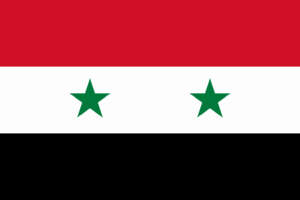
Israel
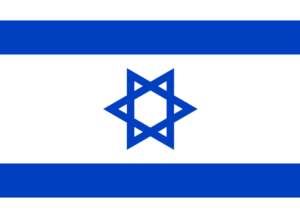
Israel, officially recognized as the State of Israel, is a nation in the Middle East’s Southern Levant region. It borders Lebanon, Syria, Jordan, and Egypt, with coastlines along the Mediterranean and Red Seas. Jerusalem serves as its declared capital, although Tel Aviv is the largest metropolitan area and commercial hub. The country’s cultural landscape blends Jewish heritage with significant Arab influences.
Historically known as the Land of Israel or the Holy Land, the region was once inhabited by the Canaanites and later became home to the ancient kingdoms of Israel and Judah. Over centuries, it came under the control of multiple empires. In response to growing European antisemitism during the late 1800s, the Zionist movement emerged, advocating for a Jewish homeland in Palestine, which gained British backing. Following World War I, Britain established the Mandate of Palestine, where rising Jewish immigration and political tensions with Arab communities led to conflict, particularly after a UN partition plan was rejected in 1947.
Israel declared independence on May 14, 1948, just as the British Mandate ended. This prompted an invasion by surrounding Arab nations, sparking the First Arab–Israeli War. Israel eventually secured control over most of the former mandate territory. Many Palestinian Arabs were displaced—an event referred to as the Nakba—while those who remained formed the core of the country’s Arab minority. Over the years, waves of Jewish immigrants, particularly from Muslim-majority countries, significantly increased the population.
After the 1967 Six-Day War, Israel took control of territories including the West Bank, Gaza Strip, Sinai Peninsula, and Golan Heights. Illegal settlements have since expanded into some of these regions despite international objections. Israel returned Sinai to Egypt as part of a 1979 peace treaty and later signed a peace accord with Jordan. In 1993, the Oslo Accords introduced limited Palestinian autonomy in certain areas, but a final peace agreement has yet to be reached. More recently, Israel has normalized ties with several Arab nations through the Abraham Accords, though periodic conflicts with Palestinian groups persist.
Digital transformation in Israel is rapidly advancing, propelled by a strong technological infrastructure and a highly skilled workforce. Businesses across various sectors are increasingly adopting sophisticated technologies and services to enhance their operations, customer engagement, and overall competitiveness. Key technologies driving this transformation include cloud computing for scalability and cost-effectiveness, the Internet of Things (IoT) for industrial automation and data collection, and Artificial Intelligence (AI) and machine learning for applications ranging from customer service to fraud detection. Cybersecurity remains a paramount concern, fostering a thriving ecosystem of startups and established players in this domain. To bolster their online presence and reach target audiences, Israeli businesses extensively utilize digital marketing strategies. Search Engine Optimization (SEO) is crucial for improving organic visibility in search engine results, while various digital marketing techniques such as social media marketing, content creation, and paid advertising campaigns are employed to engage customers and drive growth in the digitally connected marketplace.
Morocco
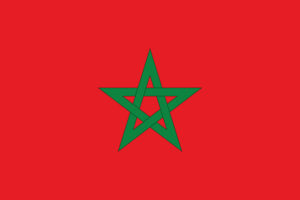
Nestled in the Maghreb region of North Africa, the Kingdom of Morocco boasts a captivating blend of influences, its shores kissed by both the Mediterranean Sea to the north and the vast Atlantic Ocean to the west. Sharing land borders with Algeria to the east and the contested Western Sahara to the south, Morocco also lays claim to the Spanish enclaves of Ceuta, Melilla, and Peñón de Vélez de la Gomera, along with several minor Spanish-controlled islands just off its coastline.
Home to approximately 37 million people, Morocco’s cultural tapestry is richly woven with Arab, Berber, African, and European threads. Islam serves as both the official and dominant faith, while Arabic and Berber hold the status of official languages. Adding to this linguistic diversity, French and the distinctive Moroccan Arabic dialect are widely spoken throughout the nation. Rabat stands as the kingdom’s capital, while the bustling metropolis of Casablanca claims the title of its largest city.
The lands that now constitute Morocco have a deep history, with evidence of human habitation stretching back over 300,000 years to the Paleolithic era. The establishment of the Idrisid dynasty in 788 marked a significant turning point, followed by a succession of independent ruling houses. Morocco reached its apex as a formidable regional power during the 11th and 12th centuries under the Almoravid and Almohad dynasties, extending its influence over much of the Iberian Peninsula and the Maghreb. The subsequent centuries witnessed substantial Arab migration from the 7th century onwards, reshaping the region’s demographic landscape.
During the 15th and 16th centuries, Morocco faced external pressures on its sovereignty, with Portugal seizing certain territories and the Ottoman Empire expanding from the east. Notably, the Marinid and Saadi dynasties successfully resisted foreign dominance, making Morocco the sole North African nation to evade Ottoman rule. The ‘Alawi dynasty, which continues to govern the country today, ascended to power in 1631 and, over the ensuing two centuries, fostered growing diplomatic and commercial ties with the Western world.
Morocco’s strategic positioning near the Mediterranean’s entrance drew renewed European attention. In 1912, France and Spain divided the nation into their respective protectorates, while Tangier was designated an international zone. Following periods of intermittent unrest and uprisings against colonial rule, Morocco achieved independence and reunification in 1956.
Over the past five years, Morocco has made major strides in digital transformation, driven by its National Digital Development Strategy 2020–2025 (“Maroc Digital”), spearheaded by the Digital Development Agency (ADD). This initiative has modernized public services by introducing digital identity tools, e-signatures, and interoperable data frameworks. Over 300 public services are now available online to citizens and over 200 to businesses, significantly improving administrative efficiency.
Digital hubs such as Casablanca Technopark and Rabat Technopolis have supported more than 3,000 startups and created around 15,000 jobs, positioning Morocco as a regional innovation hub. In the private sector, industries such as finance, healthcare, and agriculture have seen rapid digitization. Mobile banking and fintech platforms like Inwi Money and M-Wallet have accelerated financial inclusion, with over 75% of consumers using digital payments by 2022. In healthcare, Morocco’s National Telemedicine Initiative aims to equip 80% of rural clinics with connectivity, and the 2024 GITEX Africa summit saw the launch of Africa’s first health IT interoperability lab in Marrakech. Agriculture has embraced IoT, drones, and AI for crop monitoring and smart irrigation under the Generation Green 2020–2030 plan.
Technology-wise, Morocco is investing in cloud infrastructure, with Oracle launching the country’s first hyperscale cloud regions in 2024, while the AI Movement Center at UM6P—recognized by UNESCO—advances artificial intelligence research. Blockchain applications in land registries and trade, mobile applications for public and commercial services, and big data solutions in urban planning further underscore this shift. These initiatives have increased ICT’s contribution to GDP (now around 6.8%) and improved access to e-services, with notable gains in public service delivery, financial inclusion, and rural connectivity, solidifying Morocco’s ambition to become North Africa’s digital leader by 2030.
Alongside this Moroccan businesses and brands are leveraging a number of digital services to assist their digital transformation goals such as Morocco SEO, software development, website designs and much more to ensure they remain competitive in today’s online ecosystem.
Since gaining independence, Morocco has maintained relative stability. Possessing the fifth-largest economy in Africa, it exerts considerable influence across both the African continent and the Arab world. Recognized as a middle power on the global stage, Morocco is an active member of the Arab League, the Arab Maghreb Union, the Union for the Mediterranean, and the African Union. Its political structure is that of a unitary semi-constitutional monarchy with an elected parliament. The executive branch is jointly led by the King of Morocco and the prime minister, while legislative authority resides in the bicameral parliament, comprising the House of Representatives and the House of Councillors. Judicial power is vested in the Constitutional Court, which holds the authority to review the validity of laws, elections, and referendums. The King holds extensive executive and legislative powers, particularly in areas concerning the military, foreign policy, and religious affairs. He can issue decrees known as dahirs, which carry the force of law, and also possesses the power to dissolve parliament after consulting with the prime minister and the president of the Constitutional Court.
Azerbaijan
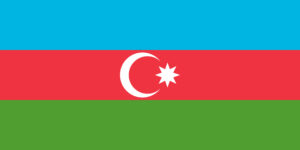
Azerbaijan, formally known as the Republic of Azerbaijan, is a landlocked country in the South Caucasus area that borders West Asia and Eastern Europe. Its land was first ruled by Caucasian Albania, followed by Persian empires. The region was part of Qajar Iran until the nineteenth century, when the Russo-Persian wars forced it to hand over its Caucasian lands to the Russian Empire. The border between Russia and Iran was delineated by the treaties of Gulistan (1813) and Turkmenchay (1828). The region north of the Aras was once part of Iran, but Russia seized it in the nineteenth century and administered it as part of the Caucasus Viceroyalty.
Azerbaijan is actively pursuing digital transformation across various sectors to modernize its economy, improve public services, and enhance the quality of life for its citizens. This push is supported by government initiatives and the increasing adoption of advanced technologies by businesses.
Key Technologies Driving Digital Transformation:
- Artificial Intelligence (AI) and Machine Learning: Being explored for applications in industries like agriculture, smart cities, and public services. The government has recently approved an AI strategy for 2025-2028.
- Internet of Things (IoT): Finding applications in agriculture for precision farming, in urban development for smart city initiatives, and in the oil and gas sector for operational efficiency.
- Big Data Analytics: Expected to improve public administration, enable personalized services, and drive data-driven decision-making across industries.
- Cloud Computing: The government is investing in the G-cloud system to centralize data and services. Cloud solutions are also being adopted by businesses for scalability and efficiency.
- 5G and Enhanced Broadband: Significant investments are being made to upgrade the telecommunications infrastructure, replacing outdated networks with fiber-optic cables to increase internet speeds and coverage.
- Blockchain: Being explored for applications in the financial sector and supply chain management to enhance transparency and security.
Industries Embracing Digital Transformation:
- Public Sector: A strong focus on e-government initiatives, with the “ASAN service” model centralizing public services and the development of online portals for various government functions.
- Oil and Gas: Utilizing IoT, AI, and automation to improve operational efficiency and resource management.
- Banking and Financial Services: The rise of FinTech, mobile banking, digital payments, and the exploration of blockchain technologies are transforming the financial landscape.
- Agriculture: Adoption of precision farming techniques and IoT devices to enhance productivity and sustainability.
- Telecommunications and IT: Significant development in IT infrastructure, including 5G and broadband expansion, supporting the growth of digital services.
- Advertising: Small and medium-sized enterprises (SMEs) in this sector are leveraging digital tools to streamline workflows, improve client satisfaction, and increase revenue.
- Tourism, Transport and Logistics, and Manufacturing: These sectors are also identified as key areas for digital transformation, with strategies including the adoption of Big Data, AI, IoT, and digital marketing.
Services Offered by Digital Transformation Companies:
Companies in Azerbaijan offer a range of services to support digital transformation, including:
- Digital Strategy Consulting: Helping businesses define their digital vision and roadmap with solutions such as SEO / AI Optimization.
- System Integration: Integrating new digital technologies with existing IT infrastructure.
- Software Development: Creating custom software solutions to address specific business needs.
- Business Process Automation: Automating repetitive tasks to improve efficiency.
- Cloud Services and Migration: Assisting with the adoption and management of cloud-based solutions.
- Cybersecurity Services: Protecting digital assets and ensuring data privacy.
- Managed Services and IT Support: Providing ongoing support for digital infrastructure and applications.
- Data Analytics and Business Intelligence: Helping organizations leverage data for insights and decision-making.
- Digital Marketing and E-commerce Solutions: Assisting businesses in reaching online customers and facilitating online transactions.
Overall, Azerbaijan is making significant strides in its digital transformation journey, driven by government support, technological advancements, and the increasing recognition of the benefits of digitalization across various industries. The focus on developing digital skills and fostering innovation further strengthens this progress, positioning Azerbaijan as a growing player in the digital economy.
Algeria
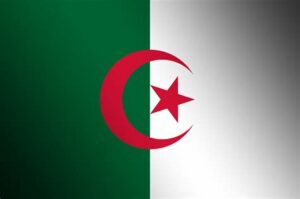
Algeria is a country in North Africa’s Maghreb area, formally known as the People’s Democratic Republic of Algeria [f]. It shares borders with Tunisia to the northeast, Libya to the east, Niger to the southeast, Mali, Mauritania, and Western Sahara to the southwest, Morocco to the west, and the Mediterranean Sea to the north. Algiers, the capital and largest city, is located far north on the Mediterranean coast.
With a history stretching back to prehistoric eras, Algeria has served as a pivotal meeting point for numerous ancient cultures, including Phoenician traders, Numidian kingdoms, Roman governance, Vandal settlements, and Byzantine Greek influence. Its contemporary identity was largely forged through centuries of Arab Muslim migrations beginning in the seventh century, which spurred the linguistic and cultural Arabization of the native populations. Following a succession of Islamic Arab and Berber dynasties spanning from the eighth to the 15th centuries, the Regency of Algiers arose in 1516. This entity functioned as a largely autonomous tributary of the Ottoman Empire and held significant sway in the Mediterranean region for approximately three hundred years. The year 1830 marked a turning point when France initiated an invasion, formally incorporating Algeria as part of its territory in 1848 after a protracted and challenging conquest that resulted in substantial displacement and a potential reduction of up to one-third of the local populace due to conflict, disease, and famine. The 1945 massacres in Sétif and Guelma galvanized local resistance, ultimately igniting the Algerian War in 1954, which culminated in the nation’s independence in 1962. Sadly, Algeria then experienced a devastating civil war between 1992 and 2002.
Encompassing a vast expanse of 2,381,741 square kilometers, Algeria ranks as the tenth-largest country worldwide and the most expansive on the African continent. Its climate is predominantly semi-arid, with the Sahara Desert covering the majority of its landmass. The bulk of its 44 million residents inhabit the fertile and mountainous northern regions. While Arabic and Tamazight hold official language status, Algerian Arabic is the mother tongue for most citizens. French is utilized in various sectors like media and education but lacks official recognition. Ethnically, the population is primarily composed of Arabs, with Berbers representing a significant minority. Sunni Islam is the official faith, adhered to by 99 percent of the population.
Algeria is actively pursuing digital transformation as a key strategy for economic growth and modernization, with a focus on enhancing public services and infrastructure. The nation has launched ambitious plans, including over 500 digital projects scheduled between 2025 and 2026, aligning with the broader “Digital Algeria 2030” strategy. These initiatives aim to improve digital infrastructure, promote digital governance, and foster a digital economy and society through projects like an interoperability platform and a national digital services portal. While progress is being made, challenges remain in areas such as internet connectivity in rural regions and the broader digital skills of the population.
As a semi-presidential republic, Algeria is administratively divided into 58 provinces and 1,541 communes. It exerts considerable regional influence in North Africa and is recognized as a middle power on the global stage. The nation boasts the second-highest Human Development Index in continental Africa and a substantial economy, largely fueled by its significant reserves of petroleum and natural gas, which rank among the top globally. The state-owned oil and gas company, Sonatrach, stands as Africa’s largest enterprise and a crucial supplier of natural gas to Europe. Algeria also maintains a formidable military, possessing one of the largest defense budgets in Africa and ranking among the top 25 globally. The nation is an active member of numerous international bodies, including the African Union, the Arab League, the Organization of Islamic Cooperation, OPEC, the United Nations, and the Arab Maghreb Union, of which it was a founding member.
Key Areas of Digital Impact
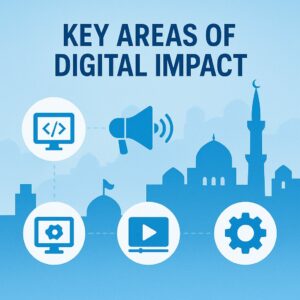
Digital transformation in the Middle East drives change across multiple sectors creating measurable economic value. Key sectors experience distinct transformations through technological integration strategic implementation.
Business and Economic Growth
Digital transformation accelerates economic diversification in the Middle East’s business landscape. The integration of digital technologies contributes 3.8% to annual GDP generating $95 billion by 2025. GCC countries implement e-commerce digital services AI robotics to reduce oil dependency. The projected GDP increase reaches 46% over 30 years resulting in $1.6 trillion long-term economic gains.
Infrastructure and Smart Cities
Smart city initiatives transform urban infrastructure through integrated technological solutions. The deployment of 5G networks high-speed broadband enables seamless connectivity across digital platforms. Smart cities incorporate:
- Intelligent traffic management systems
- Interconnected energy distribution grids
- Digital public services platforms
- Automated urban monitoring solutions
Education and Workforce Development
Digital transformation creates specialized employment opportunities in emerging technology sectors. The focus areas include:
- AI development programs
- Data science initiatives
- Automation technology training
- Digital skills certification courses
Key employment sectors prioritize:
- Technical expertise development
- Digital literacy programs
- Professional certification paths
- Industry-specific digital training
Strategic Benefits for the Region
Digital transformation creates measurable economic advantages in the Middle East through three key areas: economic diversification, job creation, and enhanced global competitiveness. These benefits align with regional goals to reduce oil dependency and establish knowledge-based economies.
Economic Diversification
Middle Eastern countries leverage digital transformation to diversify their economic base beyond oil and gas revenues. Saudi Arabia’s Vision 2030 implements digital solutions across industries through 5G technology and AI-centric environments. The UAE and Bahrain focus on e-commerce platforms and digital services, creating new revenue streams in the technology sector.
Job Creation and Skills Development
Digital transformation generates specialized employment opportunities in emerging technology sectors. Companies like AGR Technology support regional businesses by providing digital solutions that create positions for:
- Data scientists and analysts
- AI developers and engineers
- Digital transformation specialists
- Cloud computing experts
- Cybersecurity professionals
Enhanced Global Competitiveness
- Advanced infrastructure development
- Automated business processes
- Digital service delivery platforms
- Modern payment systems
- Smart city implementations
| Economic Impact Metrics | Value |
|---|---|
| Annual GDP Contribution | 3.8% |
| Projected Value by 2025 | $95B |
| 30-Year GDP Increase | 46% |
| Long-term Economic Gains | $1.6T |
Implementation Roadmap
The Middle East’s digital transformation roadmap combines comprehensive national strategies with practical implementation frameworks. Countries across the region have established clear digital agendas that prioritize technological advancement and economic diversification.
Building Digital Infrastructure

Middle Eastern governments are investing in robust digital infrastructure through strategic partnerships and dedicated funding initiatives. Saudi Arabia’s Vision 2030 incorporates advanced technologies including 5G networks and cloud computing platforms. Digital infrastructure developments include:
- Integration of smart city technologies in urban planning
- Implementation of high-speed fiber optic networks
- Deployment of IoT sensors for public services
- Establishment of data centers and cloud facilities
Developing Local Talent

National workforce development programs focus on creating a digitally skilled labor force. The region aims to train a significant amount of its workforce in basic data and AI skills, supported by:
- Technical certification programs in emerging technologies
- Partnerships with global technology companies
- Digital literacy initiatives across educational institutions
- Specialized training in cybersecurity and data analytics
Creating an Innovation Ecosystem

- Technology innovation centers and incubators
- Public-private partnerships for digital projects
- Regulatory frameworks supporting digital businesses
- Investment incentives for technology startups
Key Takeaways
- Digital transformation in the Middle East is driving economic diversification beyond oil dependency, with 40% of regional CEOs actively developing new digital initiatives
- The region faces challenges like digital skills gaps and cybersecurity concerns, but benefits from a tech-savvy young population and growing e-commerce opportunities
- Government programs like Qatar’s TASMU are accelerating digital adoption through smart city initiatives and e-government services, improving public service delivery by 45%
- Digital transformation is projected to contribute 3.8% to annual GDP ($95 billion by 2025) and generate $1.6 trillion in long-term economic gains over 30 years
- Strategic focus areas include building digital infrastructure, developing local talent (40% workforce AI skills target), and creating innovation ecosystems through public-private partnerships
Conclusion
Digital transformation stands as a game-changing force for the Middle East’s economic future. The region’s commitment to technological advancement through strategic initiatives smart city programs and workforce development is creating a robust foundation for sustainable growth.
The shift from oil dependency to a knowledge-based economy supported by digital solutions will continue to drive innovation and create new opportunities. With projected GDP increases and the creation of specialized jobs in emerging tech sectors the Middle East is positioning itself as a global digital hub.
The successful integration of digital technologies combined with government support and private sector participation demonstrates that the region’s digital journey is well underway. This transformation isn’t just reshaping industries – it’s creating a new economic paradigm that will benefit generations to come.
Frequently Asked Questions
What is driving digital transformation in the Middle East?
The shift from oil dependency to technological innovation is the main driver. About 40% of regional CEOs are developing new products and services, while over half are adopting emerging technologies. This transformation is supported by government initiatives, smart city programs, and digital infrastructure partnerships.
How much economic value does digital transformation create in the region?
Digital technologies contribute 3.8% to annual GDP, with an estimated value of $95 billion by 2025. The projected GDP increase could reach 46% over 30 years, potentially generating long-term economic gains of $1.6 trillion through e-commerce, digital services, AI, and robotics implementation.
What role do smart cities play in the Middle East’s digital transformation?
Smart cities are revolutionizing urban infrastructure through integrated technological solutions. They implement intelligent traffic management systems and automated urban monitoring, creating more efficient and sustainable urban environments that enhance citizen services and quality of life.
How is the workforce being prepared for digital transformation?
The region focuses on education and workforce development through specialized training programs. National initiatives aim to train 40% of the workforce in basic data and AI skills, supported by technical certification programs and partnerships with global technology companies.
What are the main challenges in implementing digital transformation?
Key challenges include the digital skills gap, cybersecurity vulnerabilities, and high infrastructure development costs. However, these are balanced by opportunities such as a young tech-savvy population, potential for AI and IoT implementation, and a growing e-commerce market.
How are Middle Eastern governments supporting digital transformation?
Governments are implementing comprehensive programs like Qatar Smart Program (TASMU) and various e-government platforms. They’re also investing in digital infrastructure, creating regulatory frameworks, and establishing public-private partnerships to accelerate technological advancement.
What role does Vision 2030 play in Saudi Arabia’s digital transformation?
Vision 2030 is Saudi Arabia’s flagship program implementing digital solutions across industries through 5G technology and AI. It aims to position Saudi Arabia among the top ten digital governments by 2030 and supports the transition to a knowledge-based economy.
How is digital transformation affecting job creation in the region?
Digital transformation is creating specialized employment opportunities in emerging technology sectors. New jobs are being created in fields such as data science, AI development, cloud computing, and cybersecurity, supported by various skills certification programs.
Online Middle East News Feed:
Related content:
Linkbuilding Services Saudi Arabia
Linkbuilding Agency Middle East
Middle East Procurement & Sourcing Solutions
Source(s) cited:
Emirates Blockchain Strategy 2021 [Online]. The Official Portal of the UAE Government. Available at: https://u.ae/en/about-the-uae/strategies-initiatives-and-awards/strategies-plans-and-visions/strategies-plans-and-visions-untill-2021/emirates-blockchain-strategy-2021 (Accessed: 4 May 2025).
(2001, May 25). Oman. Wikipedia. https://en.wikipedia.org/wiki/Oman
“Saudi Arabia” Wikipedia, 27 May 2001, en.wikipedia.org/wiki/Saudi_Arabia. Accessed 4 May 2025.
File:Arab world.svg: User:haha169, (derivative work)File:Flag-map of Yemen.svg: User:DarwinekFile:Flag map of the United Arab Emirates.svg: *File:H1N1 UAE map.svg: User:FonadierFile:Flag of the United Arab Emirates.svg:derivative work: User:Fry1989File:TunisiaStub.svg: User:Emmanuel.boutetFile:Flag-map of Syria.svg: User:DarwinekFile:Flag-map of Sudan.svg: User:DarwinekFile:Flag map of Saudi Arabia.svg: *File:Provinces of Saudi Arabia.svg:Flag of Saudi Arabia.svg: Unknownderivative work: User:Fry1989Flag-map of Qatar.svg: User:DarwinekFlag-map of Morocco.svg: User:DarwinekFlag-map of Mauritania.svg: User:DarwinekFlag-map of Libya.svg: User:DarwinekFlag-map of Lebanon.svg: User:DarwinekFlag-map of Kuwait.svg: User:DarwinekFlag-map of Iraq.svg: User:DarwinekFlag-map of Egypt.svg: User:DarwinekFlag and map of Algieria.svg: Marcin n® ☼derivative work: The Egyptian Liberal, CC BY-SA 3.0, via Wikimedia Commons
(2023). The Middle East is people-powering the digital revolution [Online]. World Economic Forum. Available at: https://www.weforum.org/stories/2023/07/is-the-middle-east-showing-how-the-digital-revolution-will-be-people-powered/ (Accessed: 4 May 2025).
80% Of Essential Govt Services Expected To Be Online By 2025, Times of Oman https://timesofoman.com/article/155462-80-of-essential-govt-services-expected-to-be-online-by-2025.
“Msn” www.msn.com/en-us/news/technology/oman-to-offer-80-of-government-services-online-by-2025/ar-AA1zO2qc?apiversion=v2&noservercache=1&domshim=1&renderwebcomponents=1&wcseo=1&batchservertelemetry=1&noservertelemetry=1. Accessed 4 May 2025.
Oman’s Government Digital Transformation Programme achieves 73% progress by November 2024. The Arabian Stories News. https://www.thearabianstories.com/2025/02/25/omans-government-digital-transformation-programme-achieves-73-progress-by-november-2024/. Published February 25, 2025. Accessed May 4, 2025.
“eCommerce – Oman” Statista Market Forecast, www.statista.com/outlook/emo/ecommerce/oman. Accessed 4 May 2025.
“United Arab Emirates.” Wikipedia. October 31, 2001. Accessed May 4, 2025. https://en.wikipedia.org/wiki/United_Arab_Emirates.
Government of Saudi Arabia. (n.d.). Digital Transformation. [online] Available at: https://my.gov.sa/en/digital-transformation [Accessed 4 May 2025].
Government of Saudi Arabia. (n.d.). Digital Strategy. [online] Available at: https://my.gov.sa/en/content/digital-strategy [Accessed 4 May 2025].
Azeus Convene. (n.d.). Vision 2030 and Digital Governance in Saudi Arabia. [online] Available at: https://www.azeusconvene.com/articles/vision-2030-and-digital-governance-in-saudi-arabia [Accessed 4 May 2025].
FutureDC. (n.d.). Digital Transformation in Government Services: Vision 2030 Toward an Integrated E-Government. [online] Available at: https://www.futuredc.com.sa/blog/digital-transformation-in-government-services-vision-2030-toward-an-integrated-e-government [Accessed 4 May 2025].
U.S. Commercial Service. (n.d.). Saudi Arabia – Digital Economy. [online] Available at: https://www.trade.gov/country-commercial-guides/saudi-arabia-digital-economy-0 [Accessed 4 May 2025].
Digital Government Authority. (n.d.). Digital Transformation Strategies Across Saudi Arabia – V1.0. [online] Available at: https://dga.gov.sa/sites/default/files/2024-10/Digital%20Transformation%20Strategies%20Across%20Saudi%20Arabia-%20V1.0.pdf [Accessed 4 May 2025].
Government of Saudi Arabia. (n.d.). What is Digital Government?. [online] Available at: https://my.gov.sa/en/content/164 [Accessed 4 May 2025].
Digital Government Authority. (n.d.). Cloud First Policy of Saudi Arabia. [online] Available at: https://dig.watch/resource/cloud-first-policy-of-saudi-arabia [Accessed 4 May 2025].
Ministry of Communications and Information Technology. (n.d.). Acts and Regulations. [online] Available at: https://www.mcit.gov.sa/en/acts-and-regulations [Accessed 4 May 2025].
Saudipedia. (n.d.). Cloud services in the Kingdom. [online] Available at: https://saudipedia.com/en/article/1707/economy-and-business/data-and-ai/cloud-services-in-the-kingdom [Accessed 4 May 2025].
CloudSigma. (2023). Cloud First Policy in the Kingdom of Saudi Arabia. [online] Available at: https://blog.cloudsigma.com/cloud-first-policy-in-the-kingdom-of-saudi-arabia/ [Accessed 4 May 2025].
Ministry of Communications and Information Technology. (n.d.). Cloud Computing Policy. [online] Available at: https://www.mcit.gov.sa/sites/default/files/cloud_policy_en.pdf [Accessed 4 May 2025].
BIOS Middle East. (n.d.). What is the Cloud-First Policy in KSA?. [online] Available at: https://www.biosme.com/blog/what-is-the-cloud-first-policy-in-ksa [Accessed 4 May 2025].
Telecom Review. (2023). A deep dive into Saudi Arabia’s tech-driven smart cities. [online] Available at: https://www.telecomreview.com/articles/reports-and-coverage/8846-a-deep-dive-into-saudi-arabia-s-tech-driven-smart-cities [Accessed 4 May 2025].
AtkinsRéalis. (2022). Building NEOM: The world’s first cognitive and smart city. [online] Available at: https://careers.atkinsrealis.com/blogs/2022-4/building-neom-the-world-s-first-cognitive-and-smart-city [Accessed 4 May 2025].
NEOM. (n.d.). Technology & Digital. [online] Available at: https://www.neom.com/en-us/our-business/sectors/technology-and-digital [Accessed 4 May 2025].
BGA Audiovisual. (2023). NEOM is a groundbreaking new city. [online] Available at: https://bgaudiovisual.com.au/blogs/tech-reviews/neom-is-a-groundbreaking-new-city [Accessed 4 May 2025].
Rev9 Solutions. (2023). NEOM: The AI-Driven Smart City of Saudi Arabia. [online] Available at: https://rev9solutions.com/blog/ai/neom-the-ai-driven-smart-city-of-saudi-arabia/ [Accessed 4 May 2025].
Wikipedia. (2024). Neom. [online] Available at: https://en.wikipedia.org/wiki/Neom [Accessed 4 May 2025].
SCANALYTICS INC. (2024). NEOM: Science Fiction Smart City Becoming a Reality in Saudi Arabia. [online] Available at: https://www.scanalyticsinc.com/blog/neom-science-fiction-smart-city-becoming-a-reality-in-saudi-arabia [Accessed 4 May 2025].
“Libya.” Wikipedia. May 18, 2001. Accessed May 4, 2025. https://en.wikipedia.org/wiki/Libya.
Qatar National Vision 2030. [Website: Qatar Planning and Statistics Authority]. URL: https://www.psa.gov.qa/en/qnv1/pages/default.aspx
5G Coverage and Fiber-optic Network Infrastructure in Qatar. [Website: Communications Regulatory Authority (CRA) of Qatar]. URL: https://www.cra.gov.qa/en/
5G Coverage and Fiber-optic Network Infrastructure in Qatar. [Website: Ooredoo Qatar]. URL: https://www.ooredoo.qa/
5G Coverage and Fiber-optic Network Infrastructure in Qatar. [Website: Vodafone Qatar]. URL: https://www.vodafone.qa/en/
AI in Healthcare in Qatar. [Website: Search for relevant news articles or healthcare organization websites in Qatar]. URL: [Specific URL varies depending on the source]
Data Centers in Qatar. [Website: Microsoft News Center Middle East & Africa]. URL: https://news.microsoft.com/en-xm/middleeast/
Data Centers in Qatar. [Website: Google Cloud Press Releases]. URL: https://cloud.google.com/press/
Digital Transformation of SMEs Programme in Qatar. [Website: Ministry of Commerce and Industry, Qatar]. URL: https://www.moci.gov.qa/en/
Smart City of Lusail. [Website: Lusail City]. URL: https://www.lusail.com/
Qatar Central Bank (QCB): https://www.qcb.gov.qa/en/
Qatar Fintech Hub (QFTH): [The initial search result pointed to the SDK.finance article which mentions QFTH, further exploration of Qatar Development Bank’s website might yield a direct QFTH link]
Fintech News Middle East: https://fintechnews.ae/
(2001). Qatar [Online]. Wikipedia. Available at: https://en.wikipedia.org/wiki/Qatar (Accessed: 4 May 2025).
GSMA (2023) The State of Mobile Internet Connectivity 2023. Available at: https://www.gsma.com/r/wp-content/uploads/2023/10/The-State-of-Mobile-Internet-Connectivity-Report-2023.pdf (Accessed: 4 May 2025).
GSMA (2023) The Mobile Economy Middle East and North Africa 2023. Available at: https://www.gsma.com/solutions-and-impact/connectivity-for-good/mobile-economy/wp-content/uploads/2023/12/051223-Mobile-Economy-Middle-East-and-North-Africa-2023.pdf (Accessed: 4 May 2025).
GSMA (2023) Global Mobile Trends 2023. Available at: https://www.gsmaintelligence.com/research/global-mobile-trends-2023 (Accessed: 4 May 2025).
GSMA (2023) The Mobile Economy 2023. Available at: https://www.gsmaintelligence.com/research/the-mobile-economy-2023 (Accessed: 4 May 2025).
GSMA (2023) Government and Regulatory Support is Key to Improving 4G Performance in Africa. Available at: https://www.gsma.com/get-involved/gsma-membership/gsma_resources/government-and-regulatory-support-is-key-to-improving-4g-performance-in-africa/ (Accessed: 4 May 2025).
GSMA (2023) State of Mobile Internet Connectivity Report 2023 – Middle East and North Africa. Available at: https://www.gsma.com/r/wp-content/uploads/2023/10/State-of-Mobile-Internet-Connectivity-2023-Middle-East-and-North-Africa.pdf (Accessed: 4 May 2025).
GSMA (2023) 2023 Mobile Industry Impact Report: Sustainable Development Goals. Available at: https://www.gsma.com/solutions-and-impact/connectivity-for-good/external-affairs/wp-content/uploads/2023/09/2023-Mobile-Industry-Impact-Report-Summary.pdf (Accessed: 4 May 2025).
United Nations (2022) United Nations E-Government Survey 2022. Available at: https://publicadministration.un.org/egovkb/en-us/Reports/UN-E-Government-Survey-2022 (Accessed: 4 May 2025).
UNDP (2022) United Nations Development Programme Digital Strategy 2022-2025. Available at: https://www.undp.org/libya/publications/united-nations-development-programme-digital-strategy-2022-2025 (Accessed: 4 May 2025).
UNDP (2022) Ensuring Equitable Digital Futures for Everyone. Available at: https://www.undp.org/libya/press-releases/ensuring-equitable-digital-futures-everyone (Accessed: 4 May 2025).
“Iraq” Wikipedia, 5 May 2001, en.wikipedia.org/wiki/Iraq. Accessed 4 May 2025.
digitaltransformationskills.com/digital-transformation-in-bahrain/. Accessed 4 May 2025.
Top 10 Digital Marketing Strategies for Businesses in Bahrain, (Feb. 24, 2025), https://bh.nsreem.com/technology/top-10-digital-marketing-strategies/.
(2001, April 21). Bahrain. Wikipedia. https://en.wikipedia.org/wiki/Bahrain
“The Future of Digital Marketing in Bahrain.” Nsreem. March 3, 2025. Accessed May 4, 2025. https://bh.nsreem.com/technology/the-future-of-digital-marketing/.
https://www.iconfinder.com/icons/4417104/download/png/512. Accessed May 4, 2025.
[Online]. Available at: https://www.iconfinder.com/icons/4308325/download/png/512 (Accessed: 4 May 2025).
[Online]. Available at: https://www.iconfinder.com/icons/6602128/download/png/512 (Accessed: 4 May 2025).
CIA World Factbook
Central Intelligence Agency. (2024). Kuwait. The World Factbook.
Available at: https://www.cia.gov/the-world-factbook/countries/kuwait/ [Accessed 4 May 2025].
Encyclopaedia Britannica
Encyclopaedia Britannica. (n.d.). Kuwait. Encyclopaedia Britannica.
Available at: https://www.britannica.com/place/Kuwait [Accessed 4 May 2025].
BBC Country Profile
BBC News. (2022). Kuwait country profile.
Available at: https://www.bbc.com/news/world-middle-east-14649272 [Accessed 4 May 2025].
UN Data and Population Estimates
United Nations. (2024). World Population Prospects – Kuwait.
Available at: https://population.un.org/wpp/ [Accessed 4 May 2025].
Kuwait Government Official Portal
State of Kuwait eGovernment. (n.d.). About Kuwait.
Available at: https://www.e.gov.kw/sites/kgoEnglish/Pages/AboutKuwait.aspx [Accessed 4 May 2025].
“Kuwait” Wikipedia, 11 May 2001, en.wikipedia.org/wiki/Kuwait. Accessed 4 May 2025.
“Palestine.” Wikipedia. June 6, 2003. Accessed May 4, 2025. https://en.wikipedia.org/wiki/Palestine.
“Turkey.” Wikipedia. September 2, 2001. Accessed May 4, 2025. https://en.wikipedia.org/wiki/Turkey.
Bing. (n.d.) Search results for “Digital transformation in Turkey industries technologies services SEO Digital marketing web design software development”. Available at: https://bing.com/search?q=Digital+transformation+in+Turkey+industries+technologies+services+SEO+Digital+marketing+web+design+software+development (Accessed: 05 May 2025).
Azkan Group. (2024) Digital Transformation in Businesses in Turkey. Available at: https://www.azkangroup.com/digital-transformation-in-businesses-in-turkey (Accessed: 05 May 2025).
Portulans Institute. (2021) The Turkish Exporters Assembly Tells Us About Turkey’s Digital Transformation, and How to Stay Future-Ready. Available at: https://portulansinstitute.org/the-turkish-exporters-assembly-tells-us-about-turkeys-digital-transformation-and-how-to-stay-future-ready/ (Accessed: 05 May 2025).
(2021). The Turkish Exporters Assembly Tells Us About Turkey’s Digital Transformation, and How to Stay Future-Ready [Online]. Portulans Institute. Available at: https://portulansinstitute.org/the-turkish-exporters-assembly-tells-us-about-turkeys-digital-transformation-and-how-to-stay-future-ready/ (Accessed: 4 May 2025).
A. Group, (2024). Digital Transformation in Businesses in Turkey [Online]. AZKAN GROUP. Available at: https://www.azkangroup.com/digital-transformation-in-businesses-in-turkey (Accessed: 4 May 2025).
“Yemen” Wikipedia, 31 May 2001, en.wikipedia.org/wiki/Yemen. Accessed 5 May 2025.
“Iran” Wikipedia, 22 Oct. 2001, en.wikipedia.org/wiki/Iran. Accessed 5 May 2025.
“Silicon Persia: Iran’s AI Aspirations and Challenges” 24 Mar. 2025, www.specialeurasia.com/2025/03/24/iran-ai-silicon-persia/. Accessed 5 May 2025.
“Iran’s AI Ambitions: National Security, Global Influence, and Strategic Challenges” 17 Apr. 2025, www.recordedfuture.com/research/irans-ai-ambitions-balancing-economic-isolation-national-security-imperatives. Accessed 5 May 2025.
Dagres, Holly. Foreign Military Studies Office, 14 Nov. 2024, fmso.tradoc.army.mil/2024/iranian-military-equipment-integrating-artificial-intelligence/. Accessed 5 May 2025.
apps.dtic.mil/sti/citations/AD1107324. Accessed 5 May 2025.
English, IRNA. “Iranian president makes 5 proposals at BRICS summit in Russia” IRNA English, 23 Oct. 2024, en.irna.ir/news/85637266/Iranian-president-makes-5-proposals-at-BRICS-summit-in-Russia. Accessed 5 May 2025.
Mostajabi, Masoud. “Iranians endure internet shutdown with despair and disarray” Atlantic Council, 25 Nov. 2019, www.atlanticcouncil.org/blogs/iransource/iranians-endure-internet-shutdown-with-despair-and-disarray/. Accessed 5 May 2025.
“Iran Digital Govrenment” Information Technology Executive Council, 1 June 2024, itec.gov.ir/en/news/31/iran-digital-govrenment. Accessed 5 May 2025.
Shokri, Umud. “Iran Becomes A Member Of BRICS, With Hopes And Challenges” Iran International, 2 Jan. 2024, www.iranintl.com/en/202401020918. Accessed 5 May 2025.
“Lebanon” Wikipedia, 18 May 2001, en.wikipedia.org/wiki/Lebanon. Accessed 5 May 2025.
Arab News, 2025. Lebanon’s Ogero aims to connect over 400,000 new homes to fiber by 2025. [online] Available at: https://www.arabnews.com [Accessed 5 May 2025].
DataReportal, 2024. Digital 2024: Lebanon. [online] Available at: https://datareportal.com/reports/digital-2024-lebanon [Accessed 5 May 2025].
Fintech Times, 2025. Lebanon’s Fintech Sector Rises from Banking Collapse. [online] Available at: https://www.thefintechtimes.com [Accessed 5 May 2025].
OECD, 2022. SME Policy Index: The Mediterranean Middle East and North Africa 2022. [online] Available at: https://www.oecd.org [Accessed 5 May 2025].
Office of the Minister of State for Administrative Reform (OMSAR), 2022. Lebanon Digital Transformation Strategy 2020–2030. [online] Available at: https://www.omsar.gov.lb [Accessed 5 May 2025].
United Nations, 2022. E-Government Development Index 2022. [online] Available at: https://publicadministration.un.org/egovkb [Accessed 5 May 2025].
World Bank, 2023. Lebanon Economic Monitor: The Normalization of Crisis. [online] Available at: https://www.worldbank.org/en/country/lebanon/publication/lebanon-economic-monitor [Accessed 5 May 2025].
World Bank, 2022. Lebanon: Digital Resilience Program. [online] Available at: https://www.worldbank.org [Accessed 5 May 2025].
Jordan. Wikipedia. https://en.wikipedia.org/wiki/Jordan. Published November 1, 2001. Accessed May 5, 2025.
Ministry of Digital Economy and Entrepreneurship (2022) Digital Jordan 2020-2025 Strategy. [online] Available at: https://modee.gov.jo/EN/List/Digital_Jordan [Accessed 5 May 2025].
World Bank (2021) Jordan Economic Monitor: En Route to Recovery. [online] Available at: https://documents.worldbank.org/en/publication/documents-reports/documentdetail/928221620844053659/jordan-economic-monitor-spring-2021-en-route-to-recovery [Accessed 5 May 2025].
USAID Jordan (2023) Digital Economy Activity: Enhancing Jordan’s Digital Transformation. [online] Available at: https://www.usaid.gov/jordan/fact-sheets/digital-economy-activity [Accessed 5 May 2025].
OECD (2022) SME Digitalisation in the MENA Region: Jordan Country Profile. [online] Available at: https://www.oecd.org/mena/competitiveness/sme-digitalisation-jordan.pdf [Accessed 5 May 2025].
“Egypt” Wikipedia, 31 Oct. 2001, en.wikipedia.org/wiki/Egypt. Accessed 5 May 2025.
International Trade Administration (2024) Egypt – Digital Economy. Available at: https://www.trade.gov/country-commercial-guides/egypt-digital-economy
Kamel, S. (2021) The Potential Impact of Digital Transformation on Egypt. ERF. Available at: https://erf.org.eg/app/uploads/2021/09/1488.pdf
FinTech Egypt (2023) Egypt FinTech Landscape Report 2023. Available at: https://fintech-egypt.com/FinTechEgypt2023/
Narwani, D. V. (2020) Egypt embraces digital transformation. World Health Expo. Available at: https://www.worldhealthexpo.com/insights/health-innovation/egypt-embraces-digital-transformation
CIO (2024) ADIB-Egypt announces 1 billion EGP digital transformation plan. Available at: https://www.cio.com/article/3619269/adib-egypt-announces-1-billion-egp-digital-transformation-plan.html
ResearchAndMarkets (2024) Egypt Ecommerce Databook Report 2024. Available at: https://www.businesswire.com/news/home/20241009373013/en/Egypt-Ecommerce-Databook-Report-2024-A-$14.9-Billion-Market-by-2028
SAMENA Council (2024) Mobile and internet subscriptions in Egypt increased by 6 million in 2023. Available at: https://www.samenacouncil.org/samena_daily_news?news=99866
Andersen Egypt (2024) Smart Contracts and Blockchain in Egypt. Available at: https://eg.andersen.com/smart-contracts-in-egypt/
Digitology (2023) Untangling the Web: A Marketing Research Report on Digital Agencies in Egypt. Available at: https://digitology.co/docs/digital-marketing-in-egypt/untangling-the-web-a-marketing-research-report-on-digital-agencies-in-egypt/
“Tunisia” Wikipedia, 30 May 2001, en.wikipedia.org/wiki/Tunisia. Accessed 5 May 2025.
Arain, G.S. (2025) “Tunisia drives digitization agenda forward while navigating risks.” Biometric Update. Available at: Link. https://biometricupdate.com/2025/tunisia-drives-digitization-agenda-forward-while-navigating-risks
German Federal Ministry for Economic Cooperation/GIZ (n.d.) Digital Transformation Center Tunisia. Available at: Link. https://giz.de/en/23123.html
International Trade Administration (2024) Tunisia – eCommerce. U.S. Dept. of Commerce. Available at: Link. https://www.trade.gov/tunisia-ecommerce
IFC (2022) “IFC and Central Bank of Tunisia announce launch of digital platform to ease bill payments.” Press Release. Available at: Link. https://ifc.org/news/ifc-central-bank-tunisia-launch-digital-platform
Barton, J. (2022) VYZYO and Al Baraka Bank launching Tunisian mobile wallet service. DevelopingTelecoms. Available at: Link. https://developingtelecoms.com/articles/2022
Lipscombe, P. (2025) “Tunisian trio launch 5G mobile services.” DataCenterDynamics. Available at: Link. https://www.datacenterdynamics.com/5G-tunisia-2025
Asquith, R. (2022) Tunisia e-invoicing el fatoura. VATcalc. Available at: Link. https://www.vatcalc.com/tunisia-e-invoicing
“Syria” Wikipedia, 28 May 2001, en.wikipedia.org/wiki/Syria. Accessed 5 May 2025.
DataReportal (2025) Digital 2025: Syria. Available at: https://datareportal.com/reports/digital-2025-syria (Accessed 05 May 2025).
Ismail Z. (2025) “Sham Cash Under Scrutiny: A Forensic Analysis of Syria’s New E-Wallet”, SMEX, 17 April. Available at: https://smex.org/sham-cash-under-scrutiny-a-forensic-analysis-of-syrias-new-e-wallet/ (Accessed 05 May 2025).
Enab Baladi (2025) “E-commerce in Syria lacks credibility”, 9 April. Available at: https://english.enabbaladi.net/archives/2025/04/e-commerce-in-syria-lacks-credibility/ (Accessed 05 May 2025).
Ajjan M. (2019) “Meet Harbuk: Syria’s First Online Shopping Platform”, Entrepreneur, 30 July. Available at: https://www.entrepreneur.com/en-ae/entrepreneurs/meet-harbuk-syrias-first-online-shopping-platform/337387 (Accessed 05 May 2025).
United Nations ESCWA (2021) “Digital transformation in Syria, and e-Participation in Jordan”. Available at: https://www.unescwa.org/news/digital-transformation-syria-and-e-participation-jordan (Accessed 05 May 2025).
Abdelnour N. et al. (2020) “’Server does not exist’… E-government in Syria is merely ink on paper”, Enab Baladi, 11 April. Available at: https://english.enabbaladi.net/archives/2020/04/server-does-not-exist-e-government-in-syria-is-merely-ink-on-paper/ (Accessed 05 May 2025).
Suliman B.A. and Mouselli S. (2024) “The quality of e-payment services offered by mobile companies: the Syrian evidence”, Cogent Business & Management, 11(1). DOI:10.1080/23311975.2024.2365998.
Samapay (n.d.) “About Samapay Electronic Payment Service”. Available at: https://www.samapay.sy/Service/en (Accessed 05 May 2025).
Syrian American Medical Society (2016) “How Telemedicine Is Becoming a Savior in Syrian Refugee Crisis”, The American Journal of Managed Care, 13 May. Available at: https://www.ajmc.com/view/how-telemedicine-is-becoming-a-savior-in-syrian-refugee-crisis (Accessed 05 May 2025).
Syria Telecom (2021) Telecommunications in Syria [Wikipedia]. Available at: https://en.wikipedia.org/wiki/Telecommunications_in_Syria (Accessed 05 May 2025).
UNICEF (2024) “Digital learning helps children in Al-Hasakeh to continue their education”, UNICEF Syria, 8 January. Available at: https://www.unicef.org/syria/stories/digital-learning-helps-children-al-hasakeh-continue-their-education (Accessed 05 May 2025).
Freedom House (2020) “Syria: Freedom on the Net 2020”. Available at: https://freedomhouse.org/country/syria/freedom-net/2020 (Accessed 05 May 2025).
Al Jazeera (2025) “Syria hit with nationwide power outage amid grid failures”, 1 April. Available at: https://www.aljazeera.com/news/2025/4/1/syria-hit-with-nationwide-power-outage-amid-grid-failures (Accessed 05 May 2025).
Othman D. (2018) “Cyber attacks and surveillance in Assad’s Syria”, SyriaDirect, 26 July. Available at: https://syriadirect.org/cyber-attacks-and-surveillance-in-assads-syria-they-can-do-whatever-they-want-they-own-the-infrastructure/ (Accessed 05 May 2025).
“Israel” Wikipedia, 14 Nov. 2001, en.wikipedia.org/wiki/Israel. Accessed 5 May 2025.
“Morocco” Wikipedia, 23 May 2001, en.wikipedia.org/wiki/Morocco. Accessed 5 May 2025.
Agence de Développement du Digital (ADD), 2021. Digital Morocco 2020-2025 Strategy. [online] Available at: https://www.add.gov.ma [Accessed 5 May 2025].
Attijariwafa Bank, 2022. Morocco’s Fintech Ecosystem Overview. [online] Available at: https://www.attijariwafabank.com/en/fintech-ecosystem [Accessed 5 May 2025].
GIZ, 2023. Modernization of Public Services in Morocco – E-Gov Program. [online] Deutsche Gesellschaft für Internationale Zusammenarbeit (GIZ). Available at: https://www.giz.de/en/worldwide/94797.html [Accessed 5 May 2025].
HIMSS, 2024. Africa’s First Health Interoperability Lab Launches in Marrakech. [online] Available at: https://www.himss.org/news/africa-health-interoperability-lab-morocco [Accessed 5 May 2025].
Maroc PME, 2023. DigiTPME Initiative for SMEs. [online] Available at: https://www.marocpme.gov.ma [Accessed 5 May 2025].
Mastercard, 2022. Consumer Payment Trends in Morocco. [online] Available at: https://www.mastercard.com/newsroom/press-releases/2022/payment-trends-morocco [Accessed 5 May 2025].
Ministère de la Santé, 2023. National Telemedicine Strategy. [online] Available at: http://www.sante.gov.ma [Accessed 5 May 2025].
Oracle, 2024. Oracle Cloud Infrastructure Expands to Morocco. [online] Available at: https://www.oracle.com/news/announcement/oracle-cloud-regions-morocco-2024 [Accessed 5 May 2025].
OCP Group, 2021. Blockchain in Phosphate Trade. [online] Available at: https://www.ocpgroup.ma [Accessed 5 May 2025].
Startup Maroc, 2023. Programs for Digital Entrepreneurs. [online] Available at: https://www.startupmaroc.org [Accessed 5 May 2025].
UM6P, 2024. AI Movement International Center Launch. [online] Available at: https://www.um6p.ma/en/news/ai-movement-unesco-center-launched [Accessed 5 May 2025].
World Bank, 2022. Digital Economy Country Assessment: Morocco. [online] Available at: https://documents.worldbank.org/en/publication/documents-reports/documentdetail/099142410262234635/idu0d9cbd1440303a0439f0b4a80503b7e1e5844 [Accessed 5 May 2025].
“Azerbaijan approves national strategy on AI, paving way for tech progress” Trend.Az, 19 Mar. 2025, en.trend.az/business/4020844.html. Accessed 5 May 2025.
Smith. “Adoption of Digital Technologies in Azerbaijan’s Agricultural Sector: A Comparative Global Perspective.” Accessed May 5, 2025. https://researcherslinks.com/current-issues/Adoption-of-Digital-Technologies-in-Azerbaijan/24/1/11035/html.
“SOCAR migrated its IT systems to the “Government Cloud””, Trend.Az. 15-Apr.-2025. [Online]. Available: https://en.trend.az/azerbaijan/business/4030633.html. [Accessed: 5-May-2025].
Reanda International News | Azerbaijan: Infrastructure Investments Driving Economic Growth in Azerbaijan [Online]. Azerbaijan: Infrastructure Investments Driving Eco. Available at: https://www.reanda-international.com/news/azerbaijan-infrastructure-investments-driving-economic-growth-in-azerbaijan (Accessed: 5 May 2025).
Nginx, sciencehorizon.com.ua/en/journals/tom-28-2-2025/integratsiya-tekhnologiyi-blokcheyn-v-agrarny-sektor-azerbaydzhanu-perspektivi-ta-vikliki. Accessed 5 May 2025.
Azerbaijan’s revolutionary ASAN public services, Azerbaijan’s revolutionary ASAN public services (Jan. 22, 2024), https://www.intellinews.com/azerbaijan-s-revolutionary-asan-public-services-308823/.
“Access Blocked.” Accessed May 5, 2025. https://interfax.com/newsroom/top-stories/109655/.
J. Ali, “The Internet in Azerbaijan: From Start to Modernity – Caspian – Alpine Society”, 9-June-2024. [Online]. Available: https://caspian-alpine.org/the-internet-in-azerbaijan-from-start-to-modernity/. [Accessed: 5-May-2025].
Priya, H. (2024, November 12). Comprehensive Guide to Custom Software Development Process [2025]. https://www.builder.ai/blog/custom-software-development-process
“Attention Required!” Cloudflare, www.thefastmode.com/technology-solutions/41472-gcore-and-azintelecom-partner-for-sovereign-cloud-services-in-azerbaijan. Accessed 5 May 2025.
(2022, January 20). What is business process automation?. https://www.redhat.com/en/topics/automation/what-is-business-process-automation
“Top 10+ Cybersecurity Companies in Azerbaijan (2025)” TechBehemoths, techbehemoths.com/companies/cybersecurity/azerbaijan. Accessed 5 May 2025.
Jamal Ali, Innovation and Investment: Azerbaijan’s Journey to a Digital Economy – Caspian – Alpine Society, Caspian – Alpine Society (June 12, 2024), https://caspian-alpine.org/innovation-and-investment-azerbaijan-on-the-path-to-a-digital-economy/.
Smith. “Adoption of Digital Technologies in Azerbaijan’s Agricultural Sector: A Comparative Global Perspective” researcherslinks.com/current-issues/Adoption-of-Digital-Technologies-in-Azerbaijan/24/1/11035/html. Accessed 5 May 2025.
“Azerbaijan approves national strategy on AI, paving way for tech progress” Trend.Az, 19 Mar. 2025, en.trend.az/business/4020844.html. Accessed 5 May 2025.
“SOCAR migrated its IT systems to the “Government Cloud”” Trend.Az, 15 Apr. 2025, en.trend.az/azerbaijan/business/4030633.html. Accessed 5 May 2025.
“Attention Required!” Cloudflare, www.thefastmode.com/technology-solutions/41472-gcore-and-azintelecom-partner-for-sovereign-cloud-services-in-azerbaijan. Accessed 5 May 2025.
“Reanda International News | Azerbaijan: Infrastructure Investments Driving Economic Growth in Azerbaijan” Azerbaijan: Infrastructure Investments Driving Eco, www.reanda-international.com/news/azerbaijan-infrastructure-investments-driving-economic-growth-in-azerbaijan. Accessed 5 May 2025.
(2001). Azerbaijan [Online]. Wikipedia. Available at: https://en.wikipedia.org/wiki/Azerbaijan (Accessed: 5 May 2025).
Salescrap.Online [Online]. Algeria Invest. Available at: https://www.algeriainvest.com/premium-news/transformation-numerique-plus-de-500-projets-programmes (Accessed: 5 May 2025).
E. Team, “Algeria to Modernize Public Services with 500 Digital Initiatives”, TechAfrica News. 31-Dec.-2024. [Online]. Available: https://techafricanews.com/2024/12/31/algeria-to-modernize-public-services-with-500-digital-initiatives/. [Accessed: 5-May-2025].
V. Kavcic, (2025). Algeria is committed to digital transformation [Online]. The International. Available at: https://theinternational.si/algeria-is-committed-to-digital-transformation/ (Accessed: 5 May 2025).
“Algeria” Wikipedia, 31 Oct. 2001, en.wikipedia.org/wiki/Algeria. Accessed 5 May 2025.

Alessio Rigoli is the founder of AGR Technology and got his start working in the IT space originally in Education and then in the private sector helping businesses in various industries. Alessio maintains the blog and is interested in a number of different topics emerging and current such as Digital marketing, Software development, Cryptocurrency/Blockchain, Cyber security, Linux and more.
Alessio Rigoli, AGR Technology
![logo-new-23[1] logo-new-23[1]](https://cdn-ihdfn.nitrocdn.com/eZVJvoSTyVixkEUySRKiaseNtUlmgCyu/assets/images/optimized/rev-b7ced37/agrtech.com.au/wp-content/uploads/elementor/thumbs/logo-new-231-qad2sqbr9f0wlvza81xod18hkirbk9apc0elfhpco4.png)
